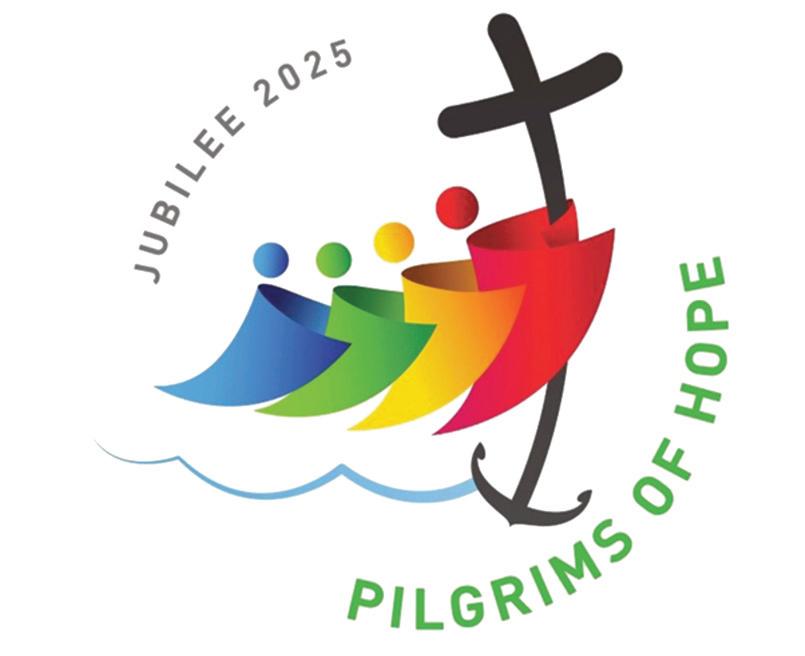

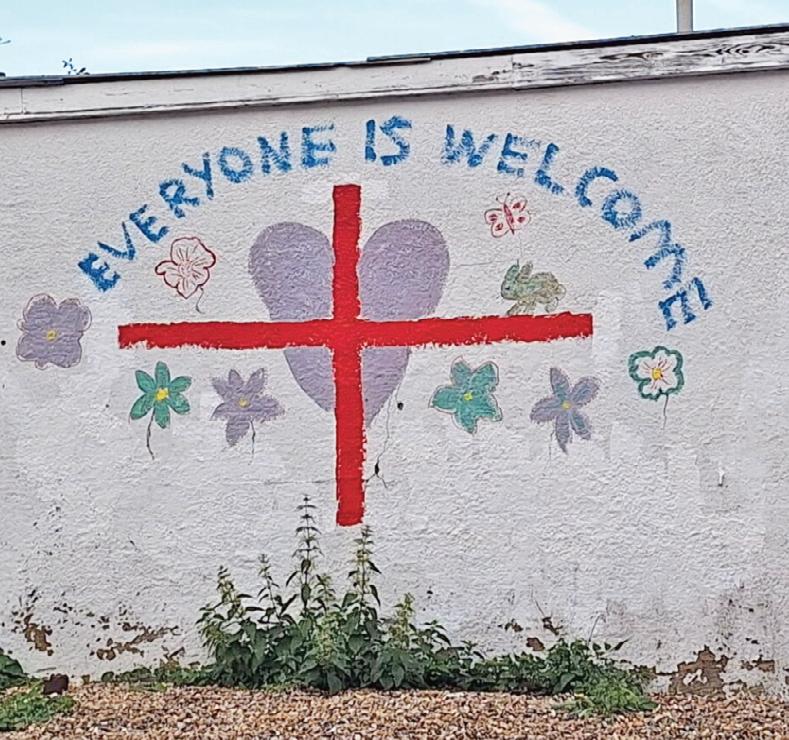
reinstates flag of Saint George
2

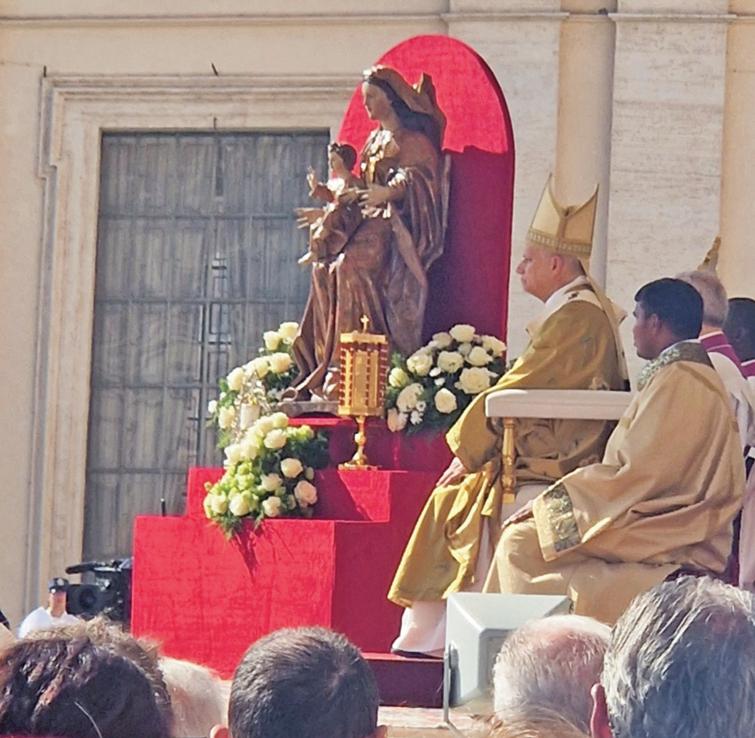
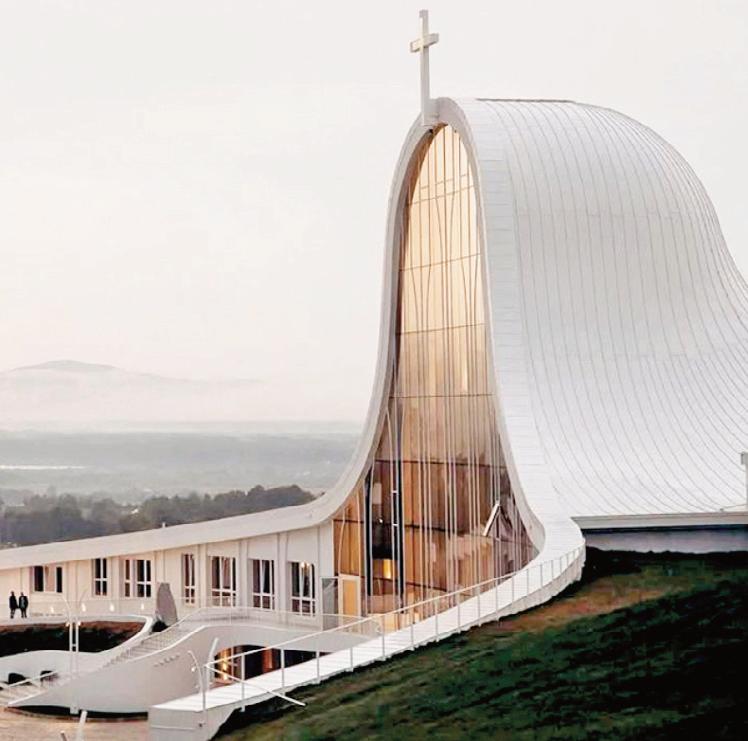





reinstates flag of Saint George
2




Dr Swee Ang, Catholic orthopaedic surgeon and co-founder of Medical Aid for Palestine has joined with other medics in an Open Letter to President Trump, appealing for him to use his power and position to stop the genocide and erasure taking place in Gaza.
Dr Ang plans to deliver the letter to the US Embassy in Beirut when she attends the 43rd anniversary of the Sabra Shatilla Massacre on 16-18 September. She appeals for people to show their support by signing the letter - see the QR code on page 2.
The Honourable Donald J Trump President of the United States of America 15 September 2025
Dear President Trump
We are a group of doctors and nurses who worked in Beirut's Gaza Hospital throughout the Sabra Shatila Palestinian Refugee Camp Massacre in 1982, 43 years ago. We are witnesses and survivors of the massacre which took place under the watch of the Israeli Army And now, like countless people round the world, we have watched with horror, pain and anguish the relentless livestreamed killing and demolition of Gaza ever since 7 October 2023. By January 2025, the official body count of Gazans killed was at least 50,000, with a further 10,000 under the rubble, of which 17,835 were children, leaving more than 35,000 kids with one or both parents killed.
But while the escalating onslaught seemed unstoppable, almost immediately after your inauguration, the world watched with bated breath the ceasefire you imposed on 19 January 2025. The bombs stopped. Food, medicine and fuel entered beleaguered Gaza, as nearly a million displaced Gazans walked from displacement towards their broken homes. Some called it a Trump-made miracle. But on 18 March, six weeks later, we watched with utter horror the breakdown of the ceasefire . Attacks on Gaza escalated and since then more than 6,000 were killed, with the

blockade of food, water and medicine creating the most brutal man-made famine ever witnessed, killing hundreds more. Partially destroyed buildings have been systematically bombed to the ground so as to expel the entire population of Gaza City and enforce the mass exodus of a million people who were sheltering in those ruins and rubble. These traumatised people were already severely malnourished, and some near death from famine and diseases. Thousands more will die. The World knows there is only one person who can put an end to this and bring peace to the Middle East. It is with this in mind that we ask you to let Gaza live and give its children a future.
We've seen this before We survived the Sabra Shatila Massacre in September 1982 - but more than 3,000 unarmed defenceless Palestinian men, women and children and their Lebanese neighbours were slaughtered in 3 days, at the rate of a thousand killed each day. A further 17,000 were abducted and never returned to their families.
It happened under the ceasefire brokered by Phillip Habib, the Middle East Envoy of your predecessor President Ronald Reagan. After a ten-week bombardment of Lebanon by land, air and sea together with a blockade of food, water and medicine, the Palestine Liberation Organisation evacuated to mitigate further loss of lives and destruction of homes, schools, institutions, farms and factories.
The most important part of the ceasefire agreement was the safety of the unarmed civilians left behind guaranteed by the Habib Peace Plan. With this assurance, hundreds of thousands of displaced, traumatised, hungry people and wounded orphans returned to rebuild their broken homes and shattered lives.
We witnessed their complete trust in the protection of the USA and how, despite the
brutal incessant bombardment of their homes, the killing and wounding of their loved ones (leaving many children orphaned), the separation of their families through the evacuation, they put their hope in the stable future in their refugee camps under the protection of the USA.
But when, three weeks later, on 15 September 1982, hundreds of Israeli tanks made a massive land invasion breaking the ceasefire, your predecessor did not protect them. The tanks rolled over fleeing human beings, shelling buildings and over-ran Beirut city.
A contingent of tanks headed for Sabra Shatila and hermetically sealed the camp. Under the direct control of the Israeli Army who had made the Kuwaiti Embassy their commandand-control centre, Christian militiamen trained and armed by Israel were sent into the camp to systematically torture, rape and brutally murder the Palestinians and their Lebanese neighbours.
Together with Palestinian and Lebanese medical staff we battled to save the lives of hundreds of severely injured patients - shot at point blank by machine guns. We had to pile the dead bodies on top of each other in the hospital mortuary as there was no space left. Frightened camp people fled into our hospital hoping to seek safety. At night, Israel launched military flares to illuminate the sky so that the atrocity could continue.
The hospital ran out of blood and anaesthetics; it also ran out of food and water for the desperate people seeking shelter. And when news came that the militia working for Israel shot patients, raped and murdered nurses in a neighbouring hospital, they fled. Our medical team stayed on to operate on the wounded and cared for them.
On the morning of 18 September 1982, our hospital was invaded by a group of soldiers who marched us out at machine gun point.

They claimed to be Lebanese but answered directly to the Israeli Army. They forced us to leave at gunpoint. We feared for the lives of our patients concerned they would be shot dead once we left. Our patients owed their lives to a Swedish nurse and a medical student who refused to leave and stayed to care for them.
As we were marched out of the hospital, we saw dead bodies and terrorised people rounded up by gun men and awaiting execution. There were large military bulldozers tearing down homes and burying people in the rubble. At one point a desperate young mother broke through the line of machine guns to give her little baby to one of us. In a flash, a gunman ordered her back. Mother and child were gunned down along with the others rounded up by the roadside after we left.
Continued on page 2


CONTACT US:
The Catholic Post is published by its owners CathCom Limited and is wholly independent of and separate from any previous newspaper.
The Catholic Post is published on the last Sunday of the month previous to publication date.
EDITOR:
Nick Layton
email: editor@catholicpost.co.uk
ADVERTISING:
Charlotte / CathCom Ltd. 01440 730399
charlotter@cathcom.org
DESIGN & LAYOUT:
David Lodge, davidl@cathcom.org
PUBLISHED BY:
CathCom Ltd. N2 Blois Meadow Business Centre, Blois Road, Steeple Bumpstead, Haverhill, Suffolk CB9 7BN 01440 730399
ARTICLES TO:
The Catholic Post
email: editor@catholicpost.co.uk or davidl@cathcom.org
Please send articles for publication by email, supplying any photos separate to the text We welcome contributions
Here are answers to some basic questions about writing for The Catholic Post How long should articles be?
Usually it seems to work out best if contributors simply say what they have to say and let us worry about finding a spot for it in the paper. What is the submission procedure?
Please send as a Word file attached to an e-mail. To submit articles for publication, send to editor@catholicpost.co.uk
Charts, graphs, and photos should be submitted as separate PDFs. Electronic photos should not be embedded or pasted into a Word document as this reduces their quality.
Photographs and Illustrations
Photographs and Illustrations should be supplied electronically as high resolution JPEG (*.JPG) files).
Photographs and illustrations should be sent in colour with a resolution of 300 dpi and a minimum size of 100 mm x 100 mm when printed (approx. 1200 pixels wide onscreen).
Computer print-outs are not acceptable. Screen captures are not ideal as they are usually not very high
Parental permission should be sought before submitting photographs of minors.
Source information -
DW = Diocesan Website.
ICN = Independent Catholic News
Views expressed in The Catholic Post are not necessarily those of the editor Last date for copy is the LAST DAY of the month prior to publication.
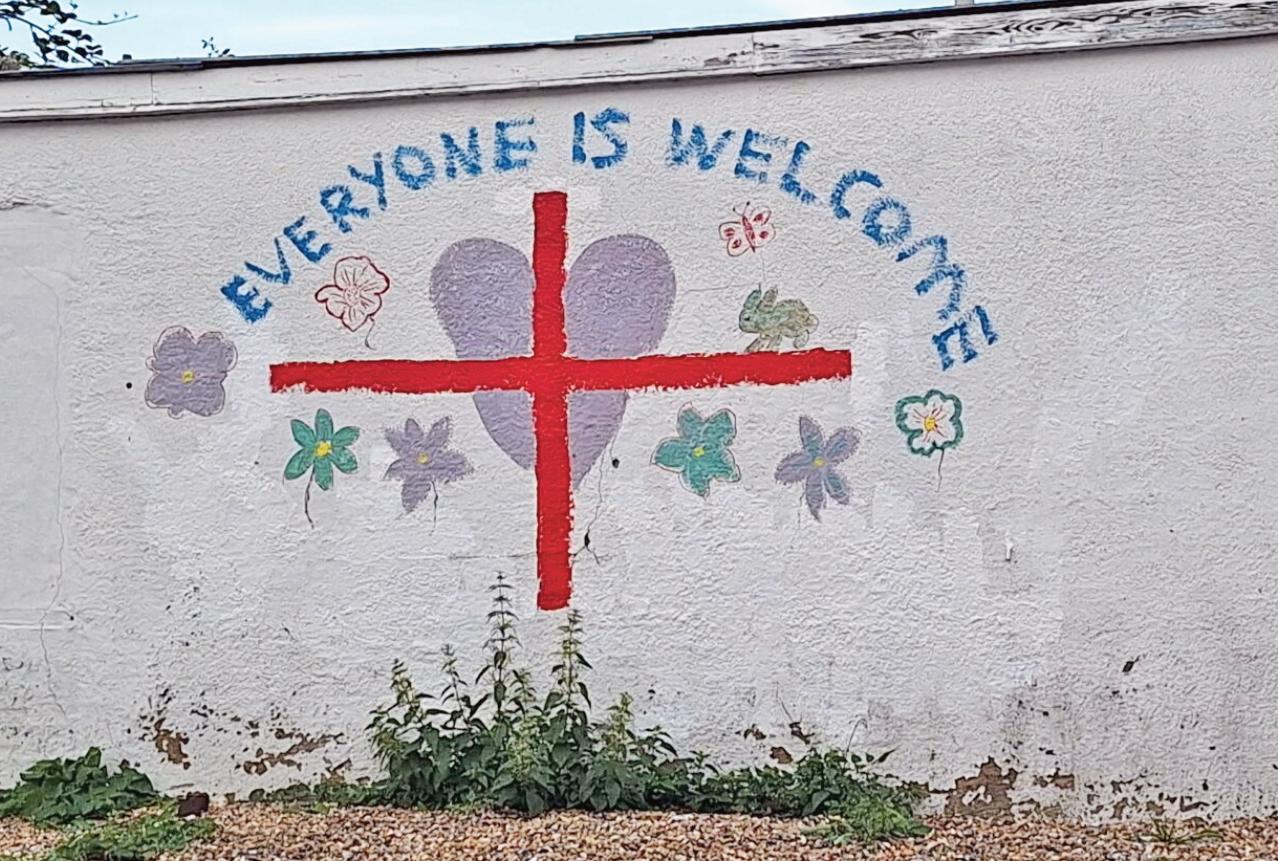
Parish Priest Fr Philip Dyer-Perry writes: Here at Our Lady of the Rosary in Staines we are proud to live and work in England, and we are also rather fond of the St George's flag. It is such a beautiful national symbol.
So, when parishioners discovered that a large red cross had been painted by others on the
Continued from page 1
But what does this mean for the here and now?
Mr President, your predecessor failed to protect the Palestinians in 1982 from this crime against humanity.
However, our purpose in writing is not to upset you with the painful events of 43 years ago, but about what is going on in Gaza now.
As we pointed out in our opening paragraphs, Gaza is now dying under a manmade famine with all the famine experts warning that if sufficient food does not get in now, half a million people in Gazaespecially children - will die within a month. Together with the Israelis, you have set up four feeding points in Gaza to replace the 400 United Nations feeding points. Yes, the number of feeding points has been reduced by 99 percent. Children are now so malnourished that they will not be normal even if they survive. There are stampedes
side of the derelict building opposite our church, a small team decided to make the most of the opportunity. After all, the 'damage' had been done.
Our team removed some less relevant comments and decorated the cross with flowers, wildlife and a welcoming message to all who pass by on their way to the station. While we don't expect this 'artwork' to last too
and panic at the feeding points as you cannot reduce the number of feeding points by 99 percent and expect hungry people not to fight and climb over each other to get something for their hungry families.
Moreover, rogue elements are shooting at the hungry crowds. Indeed, some of those working for the Gaza Humanitarian Foundation have resigned in view of the horrors they have witnessed. They are men of conscience, who risked their lives to tell the truth.
Mr President - please do not fail the people in Gaza like your predecessor failed the Palestinians in Lebanon. You are the only person in the world who can bring the daily killings in Gaza by bombs, drones and famine to an end. You did it when you forced a sixweek ceasefire on 19 January 2025. The whole world is watching now, but perhaps more important than all - God is watching too. Are you going to rescue Gaza from this catastrophe? Or are you going to let your
long, we do hope that our message of love for all who live, work in, or visit our wonderful town is received in the spirit in which it is intended.
We also ask Network Rail to look kindly on this sympathetic tidying-up of their derelict and soon to be demolished building.
St George - Pray for us!
Fr Philip Dyer-Perry
legacy be the US President who turned away when Gaza is being erased and undergoing genocide?
We await your answer and action.
With Very Best Wishes
Dr Ben Alofs, British Doctor, survivor Sabra Shatila Massacre
Dr Swee Ang, Orthopaedic Surgeon, survivor Sabra Shatila Massacre
Ms Ellen Siegel, American Jewish Nurse, survivor Sabra Shatila Massacre
To add your name to the letter, see the other signatories scan the QR Code below.

dioceseofsalford.org.uk
In a statement to mark this year's Season of Creation, the Lead Bishop for the Environment has called for Catholics to take action to address the environmental crises of our times.
“This year marks the 10th anniversary of the publication of Pope Francis’s encyclical, Laudato Si. Building on a long tradition of Catholic teaching, this encyclical served both as a call to conversion and a call to action.
“As we enter the Season of Creation, which runs from 1 September to 4 October, I call on all Catholics to honour Pope Francis’s legacy by taking heed of his teaching in this area. We only have to observe the many extreme weather events, conflicts over natural resources and destructive environmental practices that have been taking place in recent times to understand the importance and urgency of this task.
“In the first place, we are called to prayer. The world day of prayer for creation is on 1
September and the theme, chosen by Pope Francis, is: ‘Seeds of Peace and Hope’.
“Pope Leo has reminded us that the face of the earth is being ravaged, including increasingly by war, and therefore environmental justice ‘can no longer be regarded as an abstract concept or a distant goal’.
“However, as he also notes in his own message for the season of creation: ‘by working with love and perseverance, we can sow many seeds of justice and thus contribute to the growth of peace and the renewal of hope. It may well take years for this plant to bear its first fruits, years that, for their part, involve an entire ecosystem made up of continuity, fidelity, cooperation and love, especially if that love mirrors the Lord’s own self-sacrificing love.’
“I urge Catholics and people of goodwill in England and Wales to be challenged by Laudato Si to change our lifestyles, build healthy communities, and to educate ourselves and others on integral ecology.
“Prayer and education should be part of a wider process of conversion which I hope will lead all Catholics in England and Wales to take action to address the environmental crises which are linked to the other great crises of our time. If our seeds of hope are to bear fruit,
They have no need of our help
So do not tell me
These haggard faces could belong to you or me
Should life have dealt a different hand
We need to see them for who they really are
Chancers and scroungers
Layabouts and loungers
With bombs up their sleeves
Cut-throats and thieves
They are not
Welcome here
We should make them
Go back to where they came from
They cannot
Share our food
Share our homes
Share our countries
Instead let us
Build a wall to keep them out
It is not okay to say
These are people just like us
A place should only belong to those who are born there
Do not be so stupid to think that
The world can be looked at another way
(now read from bottom to top)
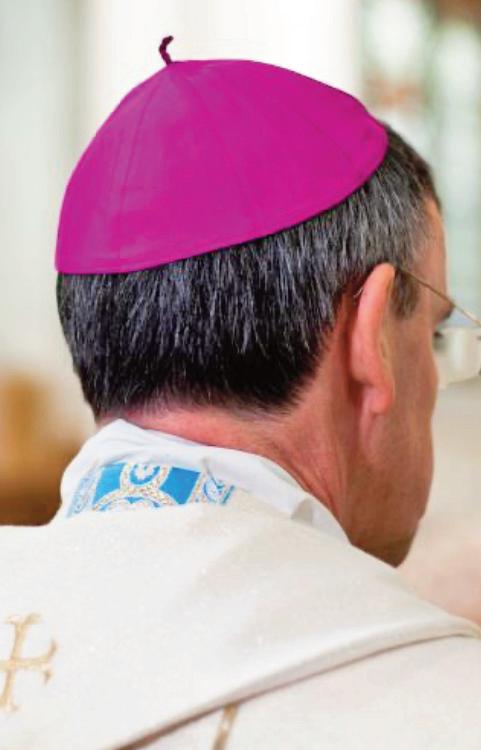
we need action at every level in society – from the personal to the parish, in politics and in business.
“I invite you to join the events that we are organising to mark the 10th anniversary of Laudato Si.”
“I also hope that parishes will use the text of the Mass for the Care of Creation during this season of creation. Most importantly, I ask you to follow Pope Leo by planting seeds of hope.”
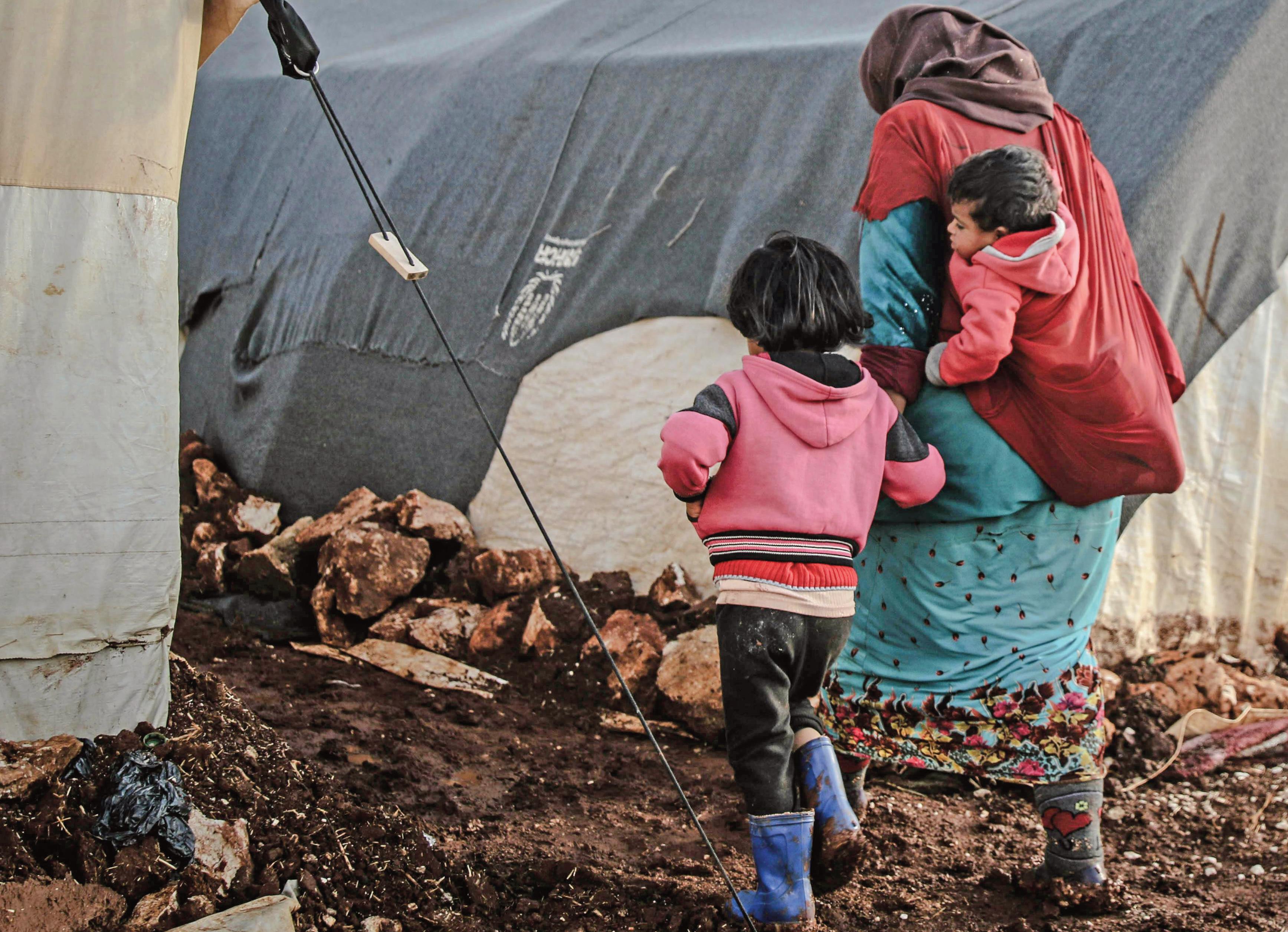
Recently, a colleague was invited to join a small gathering of neighbours and friends to celebrate a ruby wedding anniversary. The invitation bore a special request which read: “We are having the gathering in a tent in a field - wear wellington boots, it is sure to rain!”
The morning arrived and the weather forecast during the hours of the celebration was absolutely terrible. Storms and lightning, the lot. At the hour that the party was to finish - brilliant sunshine and not a cloud in the sky….
Very concerned for the outcome of the weather on the neighbours’ gathering, our friend lifted her clear-cut thoughts to God… ‘Dear God, only you can change the weather. You who once calmed the sea… These people have put such an effort into putting up the tent and arranging to provide for their friends and neighbours. Please keep it from raining.’
The gathering was a great success with no rain.
A prayer from deep within the heart is always heard by God. He may answer it in different ways than expected, for many reasons, some not known to us at the time. But we benefit by being open to the answer when it arrives… It may mean some new effort on our behalf or of opening ourselves to being more attentive to others, more patient and tolerant, or more willing. On occasion it may be a very direct answer that we can’t miss, nor explain, other than through God’s action or of him ‘opening a door.’
We can change the world around us. It just takes our effort to follow in His ways. He will give us strength, by trusting in him. And when we pray, he will hear us.
Our world needs prayer. The Angels and Saints will pray alongside us if we but ask.
www.crownofthorns.org.ukemail: office@crownofthorns.org.uk
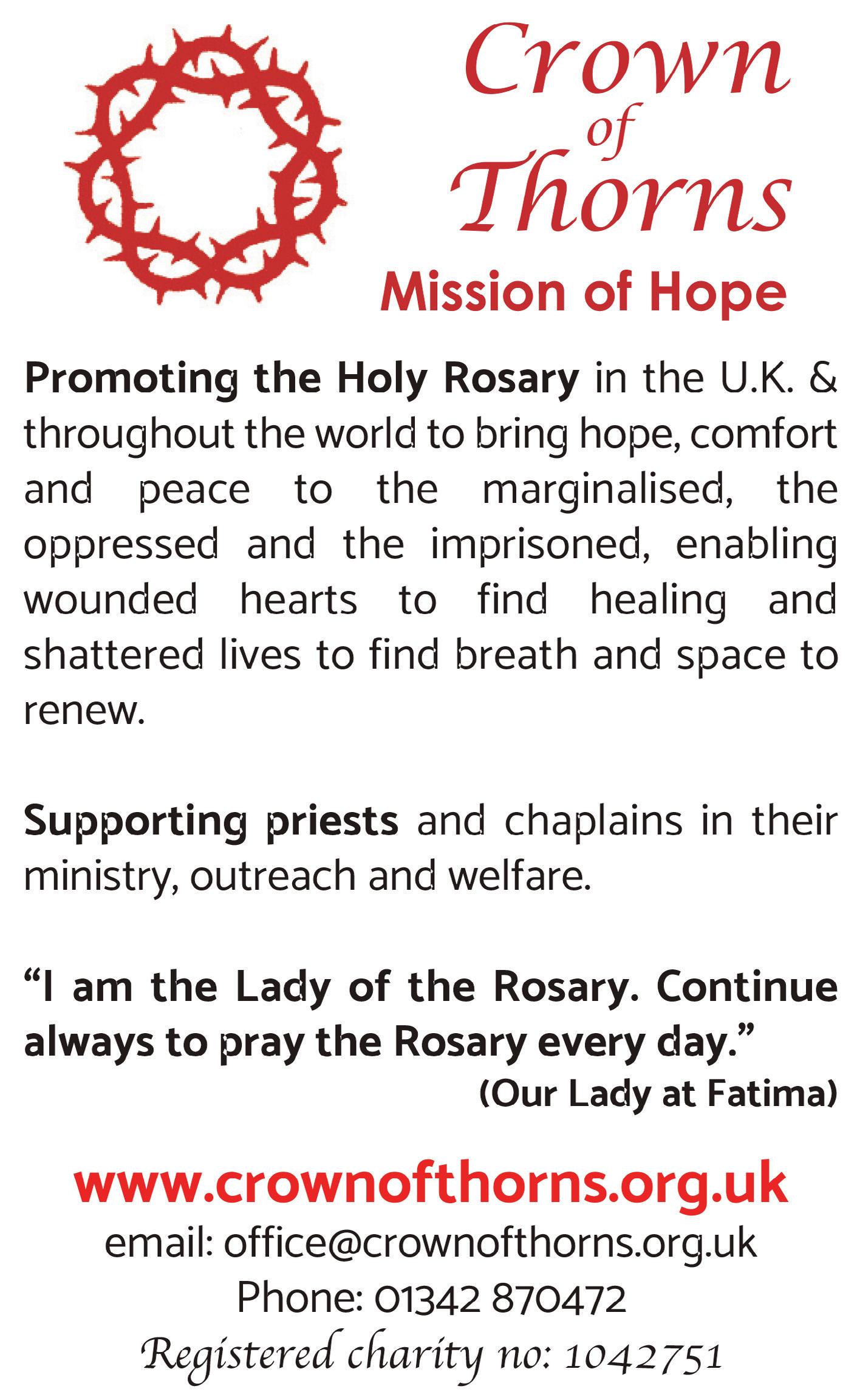
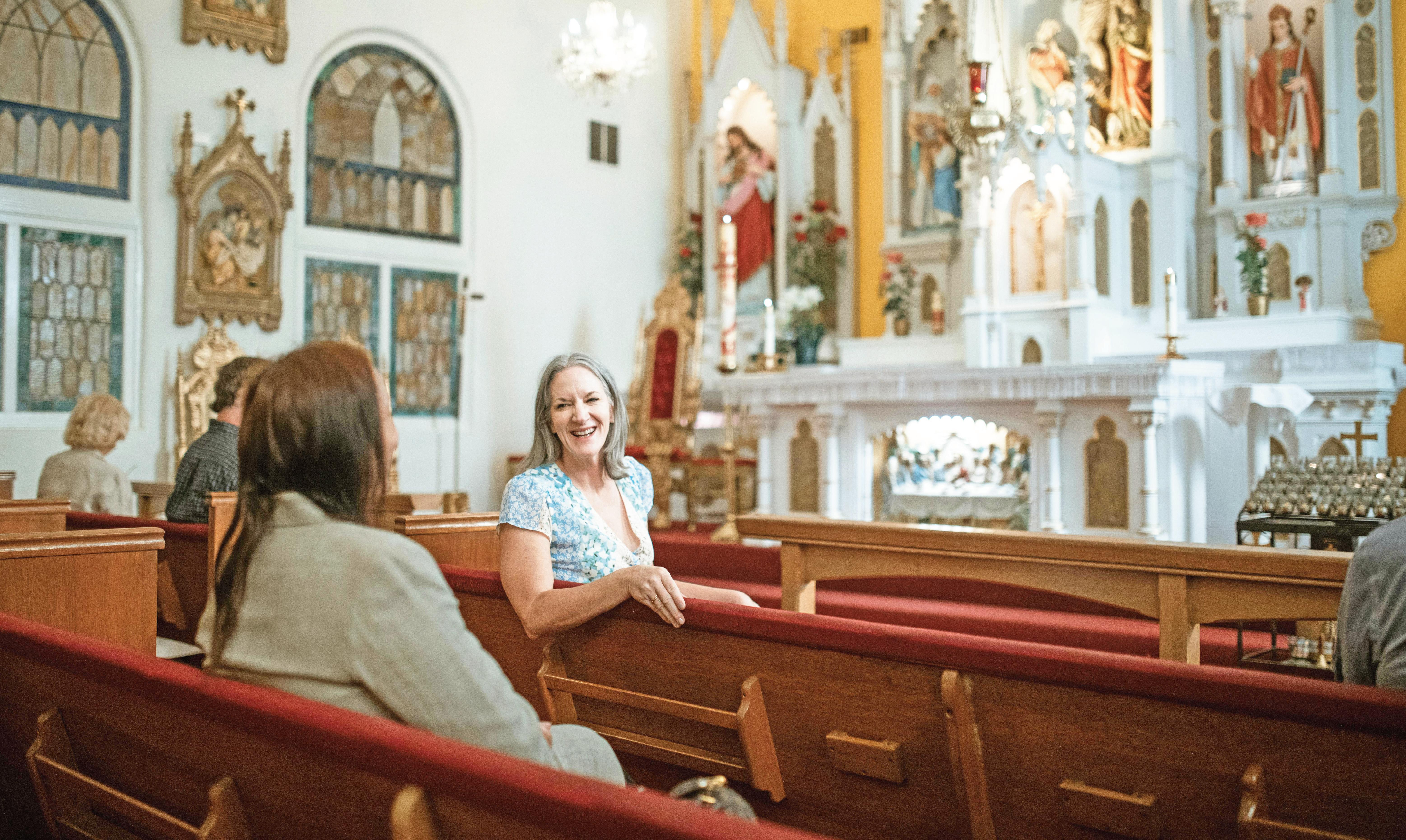
Fr Alvan Ibeh reflects on the power of a simple, sincere smile to uplift others and express inner joy, encouraging us to share this small but profound gift — even in the face of life’s challenges.
Just a few weeks ago, I went to celebrate Sunday evening Mass at one of our Mass centres. During the liturgy, I noticed a young lady who kept smiling — especially during my homily. After Mass, as usual, I stood by the door greeting those who had attended. After a few minutes, the young lady appeared, still smiling. She was with her father, and it turned out they were staying at a nearby holiday park and had decided to join us for worship that Sunday. It was, of course, their first time attending Mass in our church. They are Catholics.
When she came out and I reached out to shake her hand, she said something that touched me — and inspired this month’s article. It wasn’t that I’d never heard it before, whether sincerely or not; what moved me was that it came from someone who had just met me for the very first time. As I shook her hand, she
looked straight into my eyes and said, “You are such a happy person.”
To be honest, I wasn’t expecting that from a teenager. Many young people are often shy when it comes to speaking to a priest, especially one they’ve never met before. But the confidence this young lady showed was exceptional. It was clear she genuinely wanted to share how she felt. Her words made me pause and reflect.
I know I tend to smile a lot — it’s something I’m used to, so I don’t usually think much of it. But you can imagine the impact that simply smiling during Mass had on this young lady. She left not just feeling happy, but truly joyful. I was even tempted to ask if it was the first time she had seen a priest smile — it certainly felt like it, judging by her reaction. She looked quite amazed.
Do you know that just your smile — without saying a word — can make a real difference in someone’s life? You don’t need to be happy to smile. You don’t need everything to be going perfectly in your life to offer one. There’s a saying: “Smiling doesn’t always mean you’re happy — it means you’re strong.” It takes real strength to smile when it feels like your world is falling apart. That’s why the prophet Nehemiah declared, “The joy of the Lord is my strength” (Nehemiah 8:10).
In a world full of chaos, pain, and uncertainty, one simple but powerful act remains universally accessible: a smile. Smiling is more than just an emotional expression — it’s a sign of God’s joy flowing through us. As Proverbs 17:22 tells us, “A cheerful heart is good medicine, but a crushed spirit dries up the bones.” For the Christian, a smile is often an outward sign of an inward joy rooted in faith and trust in God.
Though Jesus was known as a man of sorrows, He was also someone who welcomed children, dined with friends, and brought joy to weddings. His presence brought peace, and surely, in those moments of compassion and healing, He must have smiled. A genuine, heartfelt smile — not a forced or artificial one — can be a reflection of divine love.
Of course, life doesn’t always make it easy to smile. Illness, loss, financial struggles, broken relationships — these can make joy feel distant. And yet, some of the most inspiring smiles come from those who choose hope over despair. Think of someone battling illness who still welcomes visitors with warmth. Or the exhausted mother, working long hours, yet smiling at her child at the end of the day.
These smiles don’t deny pain — they rise above it. They are signs of resilience, faith, and the remarkable strength of the human spirit.
In your family, your community, your school or workplace — and even on social media — wherever you find yourself, let your smile be a source of joy. In a time when negativity spreads so easily, be one of those who spreads warmth and encouragement, not with arguments or debates, but with a simple, sincere smile.
So — smile today. Smile often. Smile at strangers, at loved ones, and even at yourself in the mirror. It may just be the miracle someone else is waiting for.
Shalom.
When Beata Sperczyń
left her
home in
southern Poland
to
find work in Italy, she could hardly have imagined the role she would play in shaping the spiritual life of a boy who would one day be declared a saint britishpoles.uk
ska
Hired as a nanny by the Acutis family, she became the first person to introduce young Carlo to the world of prayer and devotion. It was Beata who taught him the simple yet profound words of his very first prayer: the traditional Polish "Aniele Boży, Stróżu mój" ("Angel of God, my guardian dear"). According to journalist Krzysztof Tadej, speaking to Vatican News, the boy would repeat the prayer several times a day, always in Polish, reciting it with fascination and deep sincerity.
On Sunday, 7 September, Carlo Acutis was canonised in Rome, becoming the first saint of the millennial generation. Behind this remarkable story lies the quiet influence of a Polish caregiver whose presence in the family home proved to be far more than professional. Sperczyńska, who today lives in New York and works as a director in an international company, played a pivotal role in nurturing the spiritual curiosity that blossomed into Carlo's renowned devotion.
Carlo's mother has openly admitted that, until her son's First Communion, she had only stepped inside a church on a handful of occasions. It was the nanny's example and gentle teaching that awakened in the child a love of prayer. Sperczyńska herself recalled that Carlo was captivated by the words of the guardian angel prayer, often asking her to explain their meaning and reciting them with striking fervour. Alongside prayers, she also introduced him to a handful of Polish phrases. When Beata's parents telephoned from Poland, it was often Carlo who answered the receiver, greeting them cheerfully with "dzień dobry" or "witam was".
Equally significant was the first religious image to enter his life: a small picture of the Black Madonna of Częstochowa. Beata had carried it

Little Carlo with his nanny Beata Sperczyńska P l e a s e s u p p o rt o u r a d v e rt i s e r s
with her from Poland and offered it to the boy on her very first day at work. That simple gift became Carlo's first image of Holy Mary, a symbol that would accompany him as his faith deepened.
Her influence extended beyond nursery duties. Beata was the first to open Carlo's imagination to deeper questions about God and the Church. He soon carried these conversations into the home, peppering his mother with what she later described as "persistent, insistent questions" about faith, questions that ultimately led to her own conversion. Inspired by her son's example, his daily prayers and his commitment to attending Mass, she enrolled in a theology course in Milan and returned to active religious practice.
"Without my son," she admitted, "I would never have found my way back to God."
As Cardinal Konrad Krajewski has said, "Live in such a way that people ask you about God."
It was precisely this lesson that Carlo absorbed from his Polish nanny, whose quiet influence has now taken on historical significance in the life of the Church.
Tomasz Modrzejewski
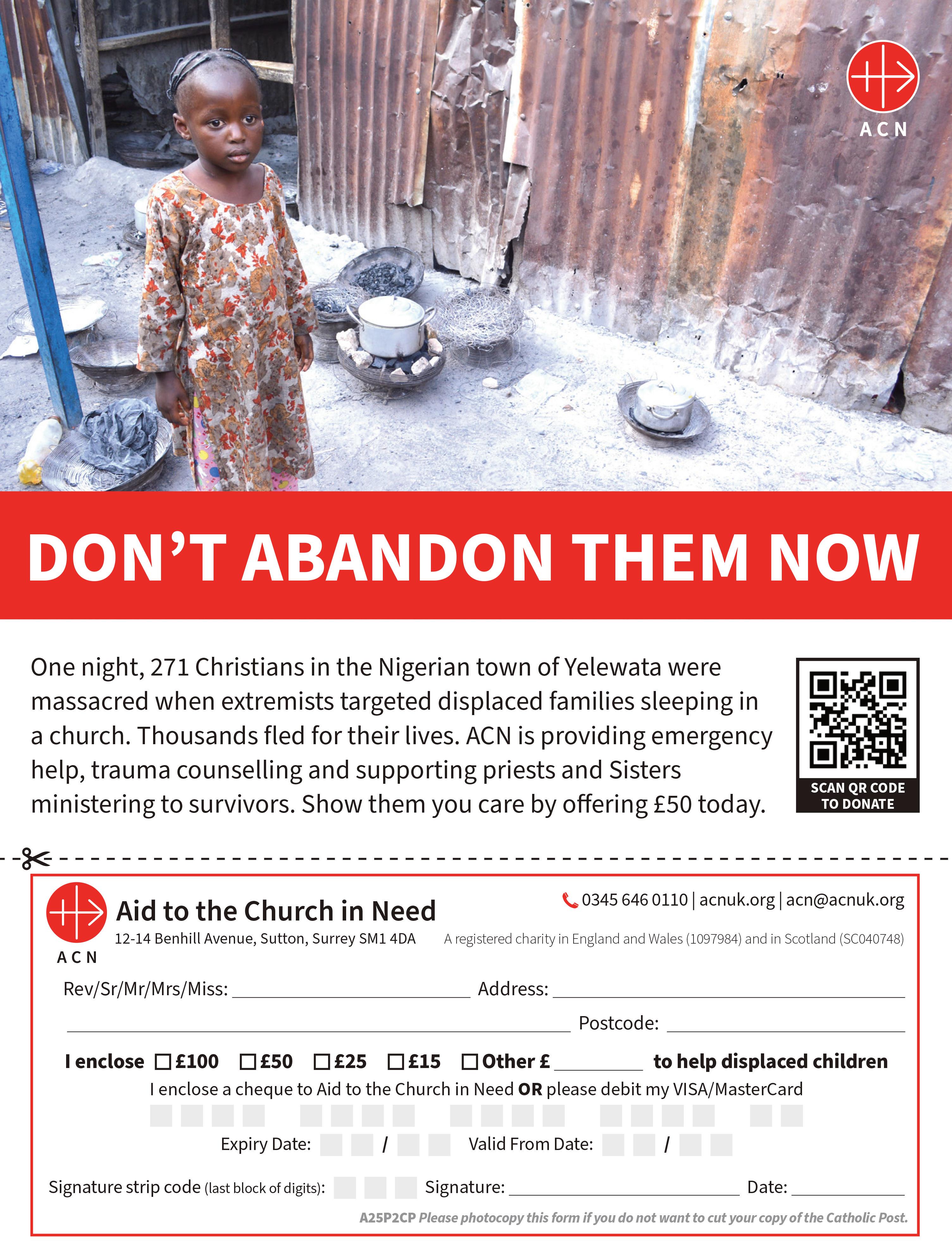
Gwen Wiseman
I will never forget 7 September, when I found myself on the Papal Altar, only nine rows from the Holy Father, at a momentous time in Catholic history. That morning the Church proclaimed its first millennial saint, Carlo Acutis. The Roman sun poured across St. Peter’s Square as the great bells of the Basilica pealed. Pilgrims from every continent, shoulder to shoulder, had gathered to witness history: the canonization of Blessed Carlo Acutis and Blessed Pier Giorgio Frassati, two young men whose ordinary lives became extraordinary paths to holiness.
While most pilgrims streamed toward St. Peter’s Basilica, I was guided in the opposite direction with a small VIP group; friends and fellow devotees of Blessed Carlo who have helped spread his message around the world. Familiar faces from the United States, England, Ireland, and Italy emerged, and we embraced like long-lost relatives. We passed the quiet façade of the Domus Sanctae Marthae, Pope Francis’ residence, and slipped through a special entrance into St. Peter’s Square. From there we climbed the broad steps to our reserved seats on the right-hand side of the Papal Altar. The view across the square was breathtaking. We knew we had a designated section, but never imagined we would be placed in such a place of honour.
We were shoulder to shoulder with ambassadors and dignitaries including the President of Italy himself. Jonathan Roumie, the Catholic star of The Chosen, arrived in the VIP section and graciously stopped to chat, and happily posed for selfies with anyone who asked, including me! One of the founders of the Hallow app, the number 1 Catholic prayer app, Bryan Enriquez, was also present. Their attendance felt fitting. Saints Carlo Acutis and Pier Giorgio Frassati both show that holiness belongs fully in the modern world, and Carlo,
patron of the internet, especially calls Catholics to evangelize through digital media. Seeing artists, and influencers alike gathered alongside Church and political leaders underscored how the Gospel continues to reach people through the internet and today’s digital platforms. On this historic morning, the Church’s newest saints were already inspiring a new generation to bring faith to every corner of the digital age.
The canonization Mass began with quiet grandeur, a graceful procession of Bishops and Cardinals. Then came the moment we had all awaited. Cardinal Marcello Semeraro, prefect of the Dicastery for the Causes of Saints, together with the postulators, read brief but stirring biographies of the two blesseds. The choir intoned the ancient Litany of the Saints, and when the final invocation faded, Pope Leo XIV solemnly declared Carlo Acutis and Pier Giorgio Frassati saints of the universal Church, decreeing that they are to be venerated by the faithful everywhere. The choir responded with a soaring Great Amen and a cascade of Alleluias, and the square erupted in jubilation. We embraced one another and cheered; I found myself elated with tears of pure joy streaming down my face.
I first heard Carlo’s name only six years ago, in 2019, when he was declared Venerable, and I rejoiced as he was beatified the following year in Assisi. At the time, Carlo’s story was scarcely known outside Italy. Yet in just a few short years I have watched the Church acknowledge his holiness step by step; first as Venerable, then Blessed, and now Saint. I have had the privilege of witnessing countless pilgrims fall to their knees in fervent prayer before his tomb in the Sanctuary of the Renunciation (Santuario della Spogliazione) in Assisi. I have spoken with hundreds of faithful who have venerated his relics during mission tours across the United Kingdom and Ireland. Inspired by his witness, I have compiled
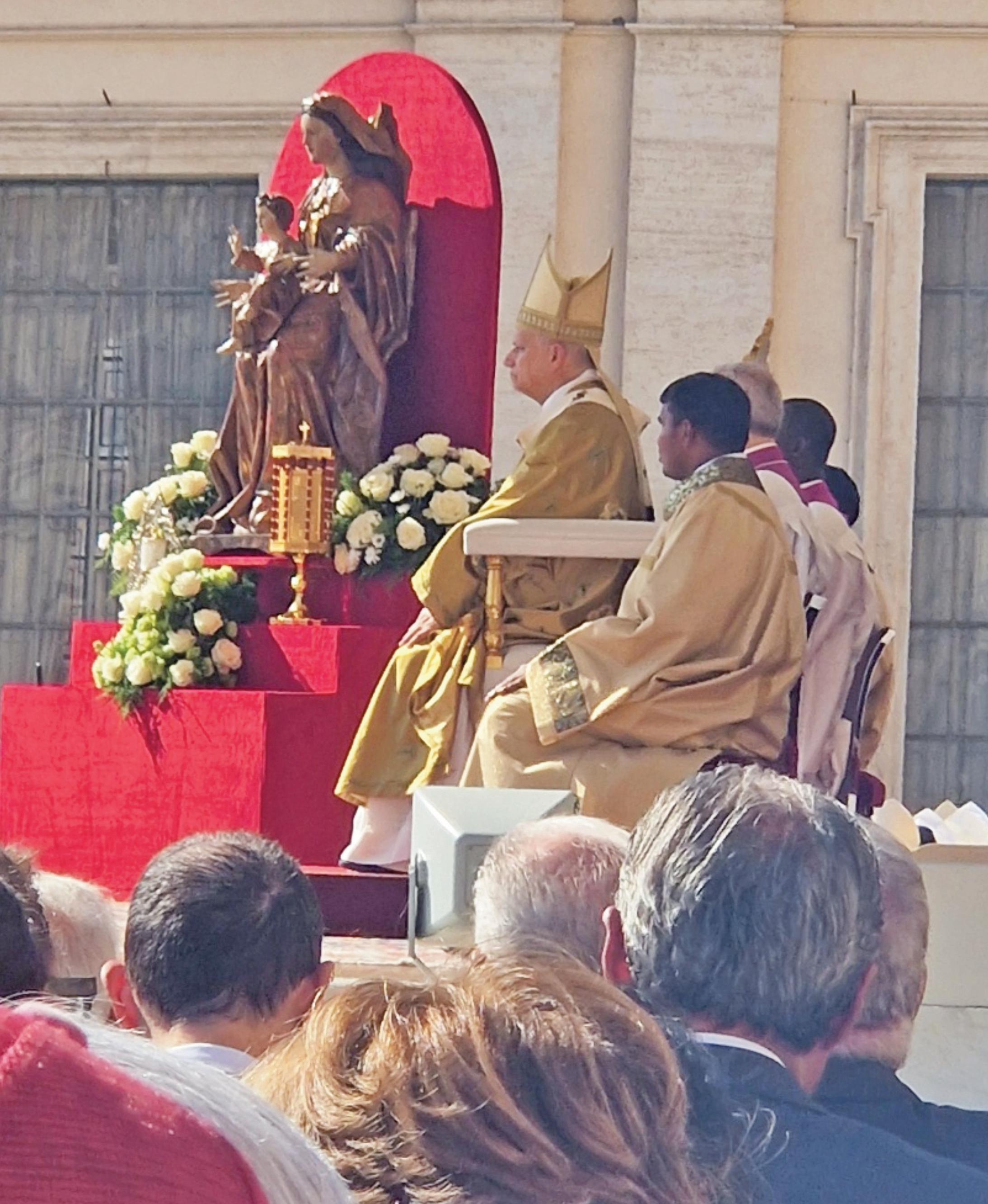
devotional books of his profound sayings and have been invited to give countless talks on the life and miracles of this remarkable teenage saint.
To witness such a swift and grace-filled journey into the communion of saints is nothing short of astonishing. I have marvelled at how quickly Catholics everywhere have
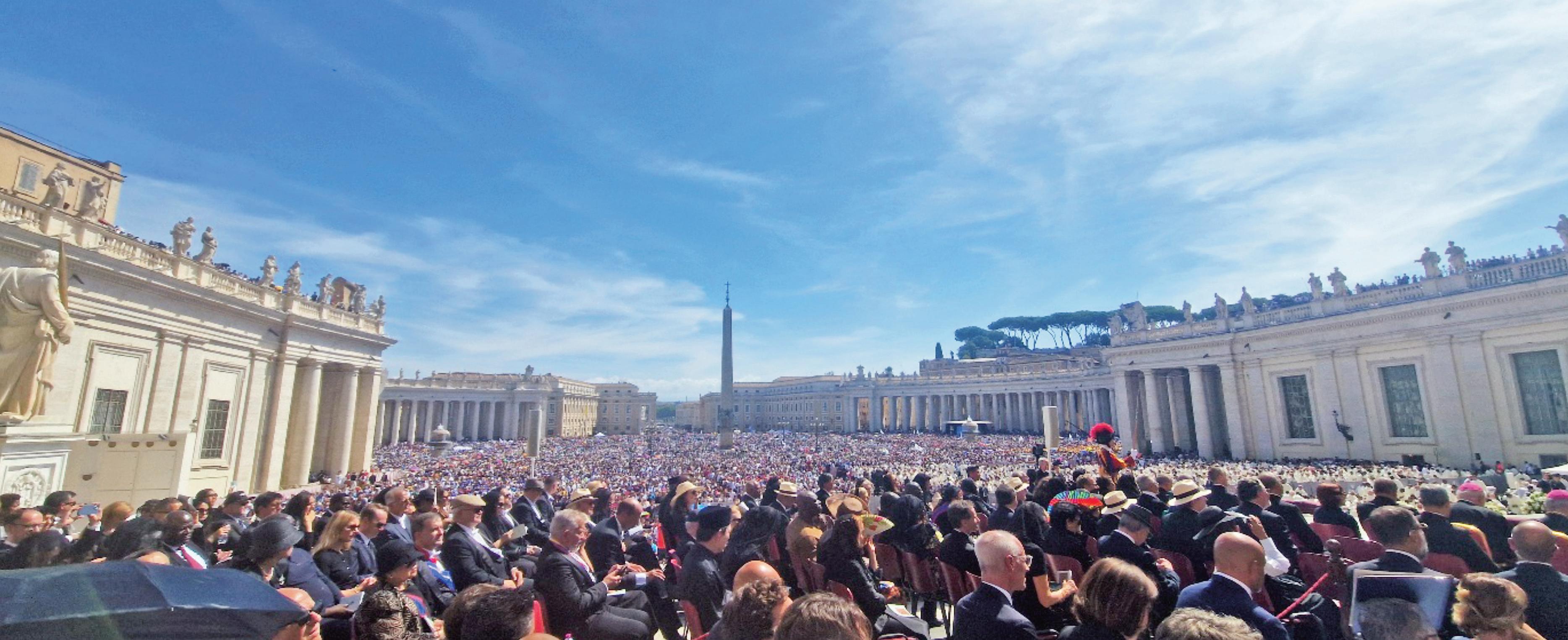
taken Carlo into their hearts, watching his story quite literally “go viral” across the globe. In my talks I often remind people that, because of his modernity, Carlo could be your grandson, son, brother, nephew, cousin, or friend. That simple truth always makes audiences pause and reflect on the closeness of holiness to everyday life. I am deeply humbled to think that, in some small way, I have been allowed to accompany him on his road to sainthood.
Together, Carlo and Pier Giorgio show that holiness can be lived in Nike trainers and hiking boots, in classrooms and on mountain trails. Their witness reminds us that sainthood is not the privilege of a few but the vocation of all, not only cloistered sisters, friars, or martyrs who give the ultimate sacrifice, but every one of us. They even make it “cool to be Catholic.” Indeed, Catholicism has been making headlines. This year, following the death of Pope Francis and the election of his successor, Pope Leo XIV, the first American-born pontiff who has urged global peace, Catholicism has captured worldwide attention. A recent Reuters report notes that Catholic practice is rising sharply among young Britons, now surpassing Anglican church attendance for the
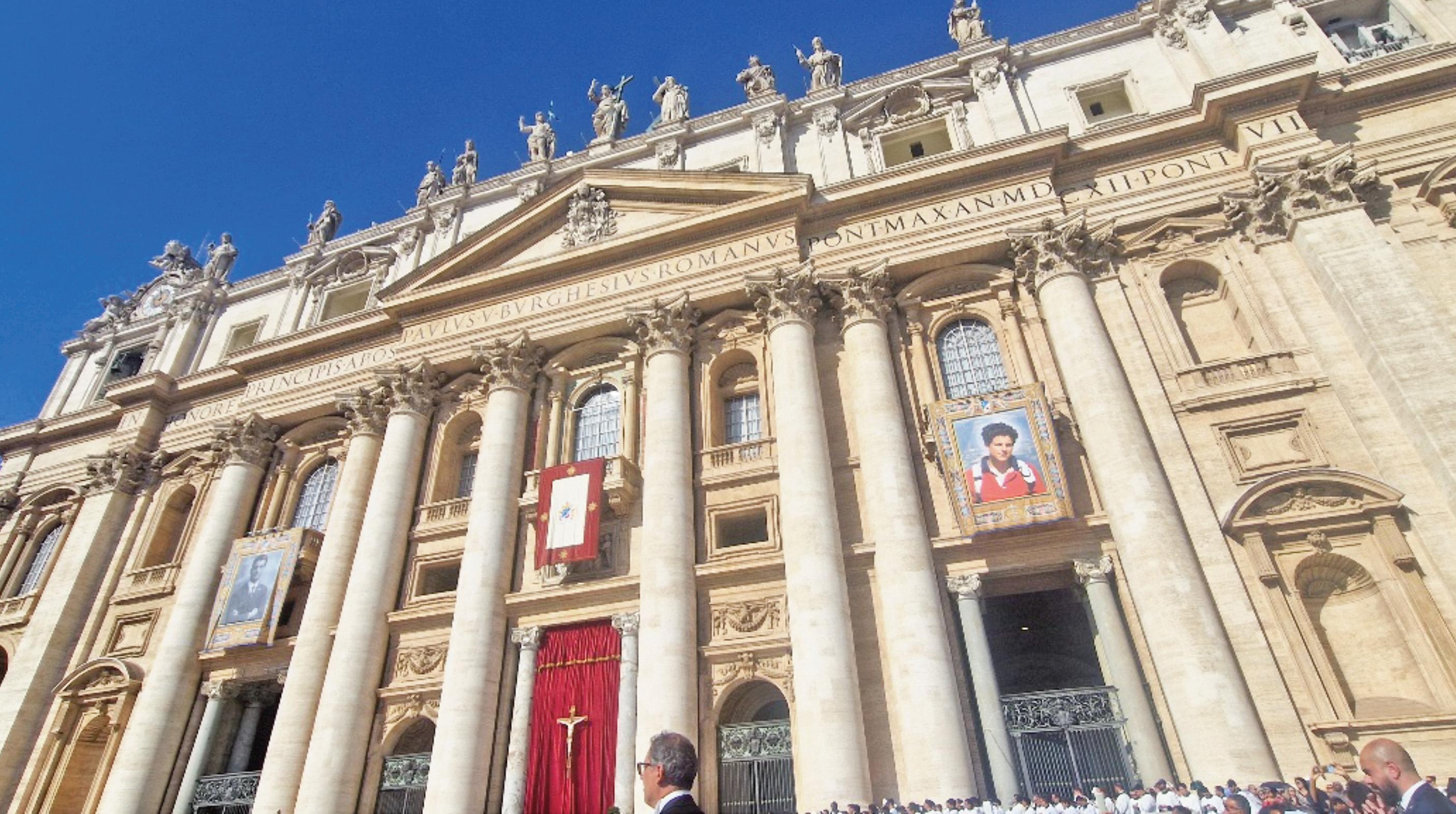
first time since the Reformation. And in June, Google recorded a 373 percent spike in searches for “How to become Catholic.” This revival, especially among Gen Z and millennials, is widely attributed to a generation seeking community, conviction, and a deeper sense of meaning in an increasingly secular society.
In his homily, Pope Leo reminded the faithful that the great saints like Francis of Assisi and Augustine are not distant heroes but ordinary people who, while still young, gave an unreserved “yes” to God. He urged especially the youth not to waste their lives but to aim high and make them “masterpieces,” highlighting Carlo’s motto, “Not I, but God,” and
Pier Giorgio’s conviction “If you have God at the center of all your actions, then you will reach the end”. He called these words “a simple but winning formula of their holiness”. This canonization is not the close of their story but the opening of a new chapter for the Church and for each of us. It is a call for each of us to seek their intercession, and to carry
Most Holy Father, Dear Pope Leo,
On behalf of the Catholic Bishops' Conference of England and Wales, and the faithful entrusted to our pastoral care, I extend our warmest congratulations and deepest prayers as you mark your seventieth birthday on 14 September, a day rich in both personal and ecclesial meaning, coinciding as it does with the Feast of the Exaltation of the Holy Cross.
This milestone is set within a season of anniversaries that reflect the depth and constancy of your vocational journey. As you approach the anniversary of your solemn profession on 29 August (1981) the beginning of your novitiate on 1 September (1977), and your first profession of vows on 2 September (1978), we honour your faithful witness to the Rule of Saint Augustine, lived over decades with humility and courage.
Equally, the anniversary of your creation as a Cardinal by Pope Francis on 30 September (2023), and your assumption of the
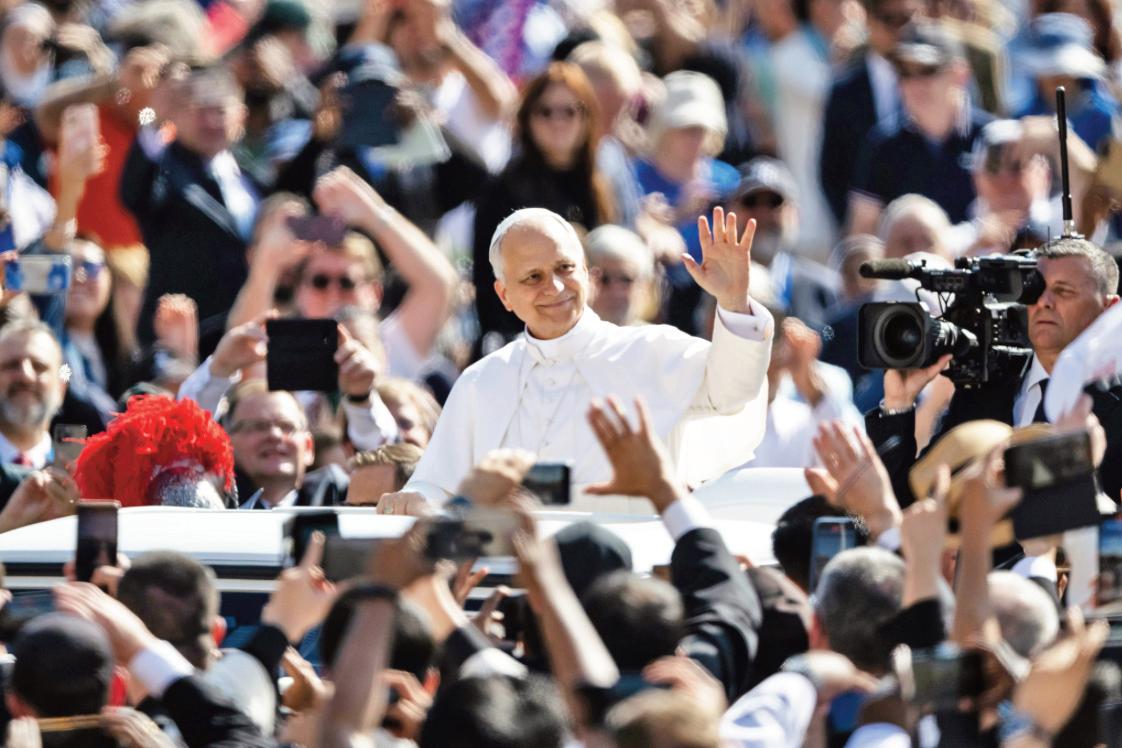
Diaconate of Saint Monica, recall the Church's recognition of your pastoral wisdom and missionary zeal - qualities that now find their fullest expression in your election as Supreme Pontiff.
The Church in England and Wales gives thanks to God for your life and vocation. We pledge to
Your Holiness our filial devotion and unity, and we entrust your ministry to the maternal care of Our Lady of Walsingham, confident that Christ, the Good Shepherd, will continue to guide you as you lead His Church.
Cardinal Vincent Nichols
of Westminster
the Gospel boldly into our own families, workplaces, and the digital world. Saints Carlo Acutis and Pier Giorgio Frassati remind us that holiness is possible today; in classrooms, on mountain trails, and even online, and that now it is our turn to answer God’s invitation to become saints where we are.
Saint Carlo Acutis, Patron of the Young, Patron of the Internet, Apostle of the Eucharist – pray for us
Saint Pier Giorgio, Patron of World Youth Day, Students and Mountain climbers – pray for us
Gwen is a Catholic writer and speaker who has authored devotional books on Saint Carlo Acutis and regularly presents talks on his life and miracles. She resides in Assisi, Italy, where she conducts retreats and leads pilgrimages that share the witness of Saints Francis, Clare, and Carlo. Contact: gwen@viaassisi,com
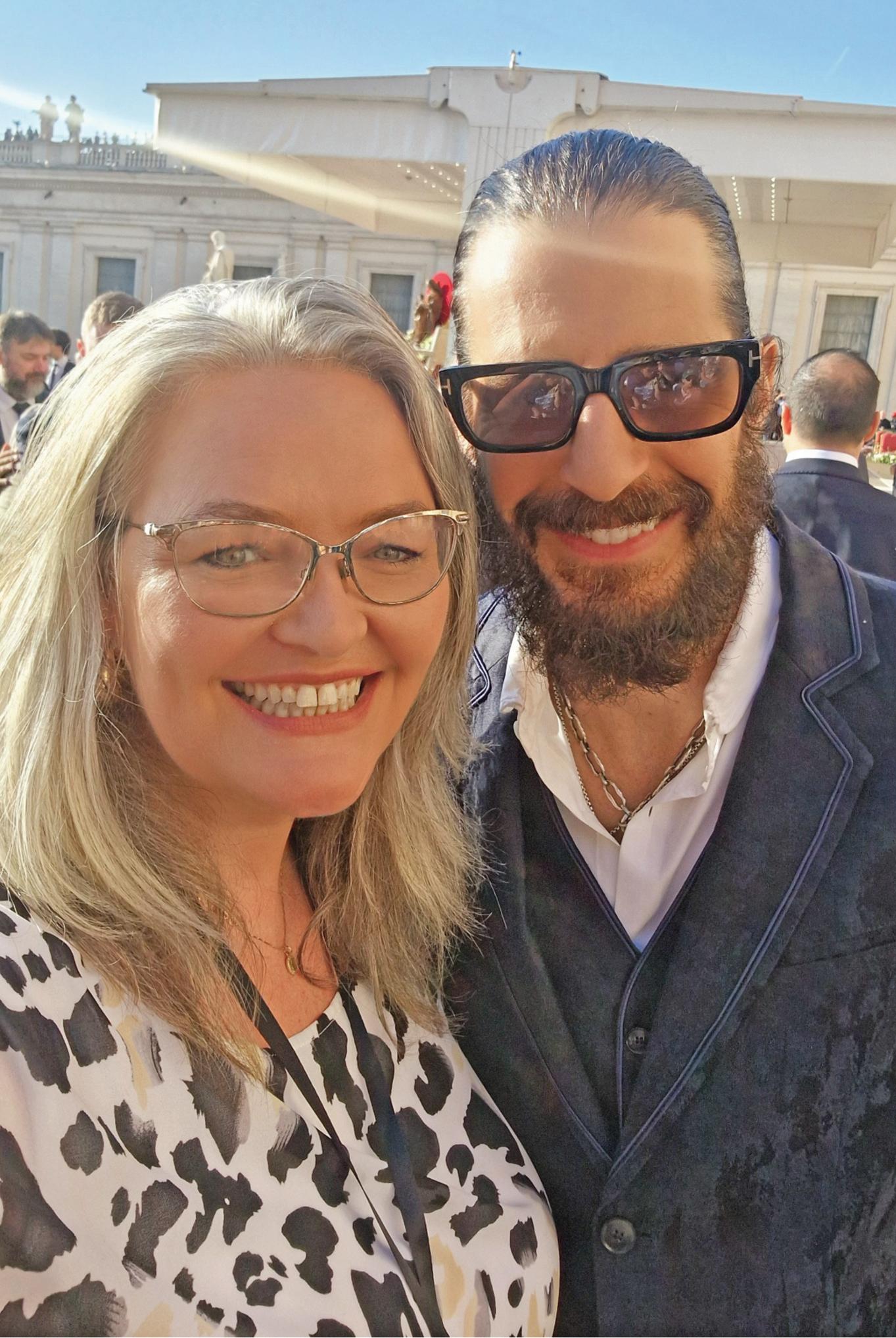
rcdow.org.uk
For me, a great pleasure of the summer is to spend time searching along the seashore for small fragments of sea-glass. It is a very simple pastime, which connects me to the beauty of the shoreline and the joy of holding a piece of magic in my hand.
Searching for sea-glass requires patience and is a reminder of how the action of the sea effects a transformational change on something discarded. This has made me reflect on the ways in which couples, who find their married love disintegrating and broken after the holidays, can be helped to create something new.
Sea-glass has its own beauty. Glass that was shattered and broken becomes something different and a valued treasure. Sea-glass is a symbol of restoration and resilience, of transformation and renewal, and of healing. If we are willing to risk, we can transform the discarded aspects of marital love by allowing the action of the ocean of God’s love to create something new. Each piece of sea-glass, like a fractured couple relationship, has its own unique beauty, as it moves from being an item of waste to a special and valued treasure, one
which is reshaped and polished into something more precious and purposeful.
My wife recently discovered a local jewellery maker who specializes in creating costume jewellery out of sea-glass, further transforming the discarded and unwanted into something of beauty and value. This is the service to couples that movements, such as Retrouvaille and Marriage Care provide.
After the pandemic, Pope Francis spoke of marriage as a vocation, that calls us to steer a tiny boat – wave-tossed yet sturdy, thanks to the reality of the sacrament – across a sometimes-stormy sea. He then went on to say, ‘How often do you want to say, or better, cry out, like the apostles, “Teacher, do you not care that we are perishing?”' (Mk 4:38). We need to be conscious that Jesus is always with us in the boat of married life and ready to dive
In a world driven by ambition and power, the life of St. Francis of Assisi shines as a powerful reminder of the beauty found in simplicity, compassion, and unwavering faith. Born into wealth in 1181 in Assisi, Italy, Francis could have lived a life of comfort and prestige. Instead, he chose a radical path— giving up all he owned to serve the poor, care for the sick, and live in harmony with nature.
Francis' transformation began after a period of illness and introspection. He heard God’s call to “rebuild my Church,” which he first interpreted literally, repairing crumbling chapels with his own hands. Over time, he realized the call was deeper: to renew the spiritual heart of the Church through love, humility, and service.
He founded the Franciscan Order, emphasizing vows of poverty, obedience, and a deep love for all of God’s creation. His
affinity with animals—most famously preaching to birds—reflected his belief that all life is sacred and interconnected. Francis treated lepers with tenderness, embraced the marginalized, and saw Christ in everyone he met.
His life was not easy—he faced opposition, illness, and suffering—but he embraced each moment with joy, seeing it as an opportunity to grow closer to God. In 1224, he received the stigmata, marks resembling the wounds of Christ, a sign of his profound union with Jesus.
St. Francis of Assisi teaches us that greatness is not found in status, but in selflessness. His life urges us to live with open hearts, care for the earth, and serve others with humility. Over 800 years later, his message is more relevant than ever: to live simply, love deeply, and walk gently upon the earth.
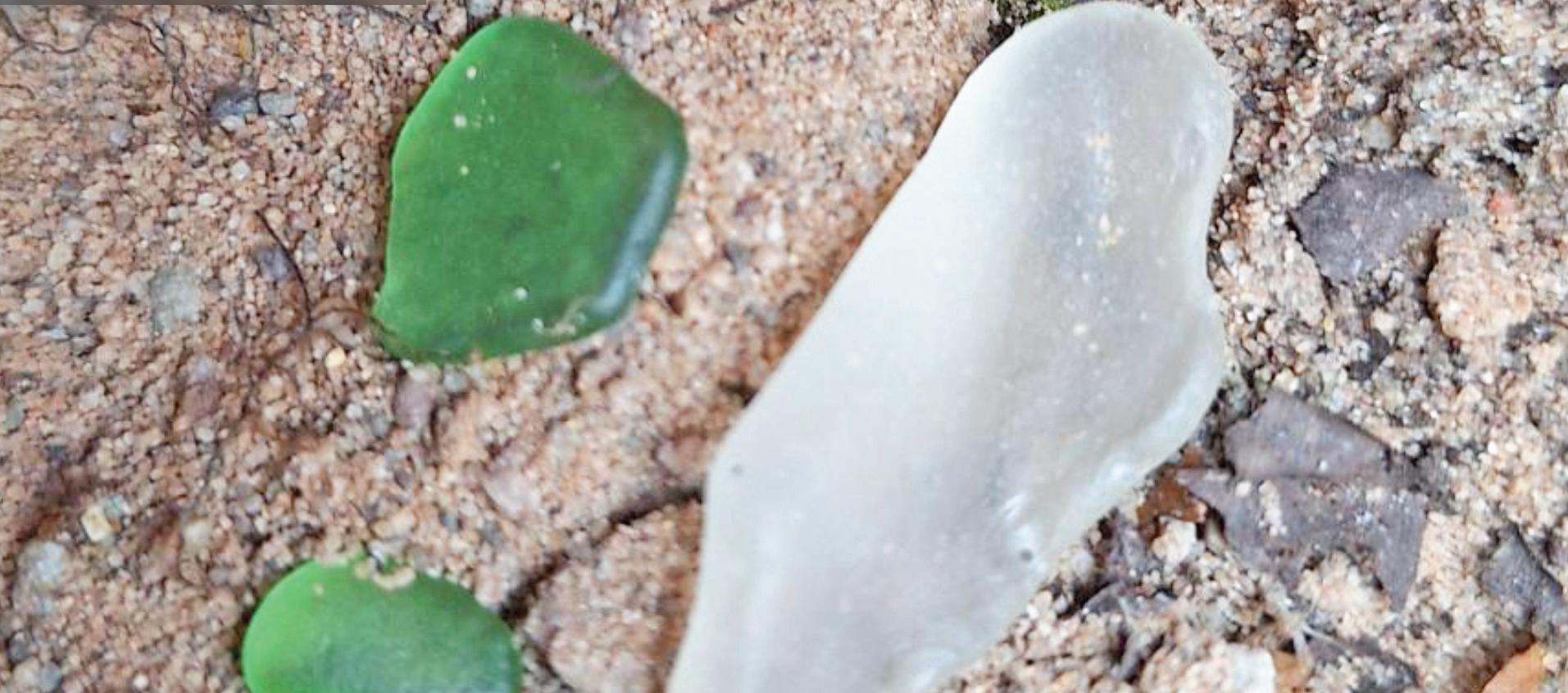
in when we fall overboard. We, though, can experience a pandemic of negativity when we are hurt or disillusioned. Jesus is always concerned for us despite our imperfections and mistakes.
So, rather than thinking that we will drown, in abandoning ourselves into his hands we can do what is impossible. We need, despite the challenges, to keep our eyes fixed on Jesus, so that we can view our marital difficulties from a different perspective. When we are willing to trust Jesus, a fractured relationship can change into something different, so that a new form of beauty emerges from the brokenness and hardship into something new and desirable. Just as the smoothing process of the waters softens the glass, we can heal the wounds,
physical, emotional or spiritual, in our relationship.
Searching for sea-glass requires being at the spot where the play of the water and the sand creates a liminal space. The word liminal comes from the Latin word Limen meaning a threshold. Just like being on the beach there is that moment in our relationship where we are in a place that is neither sea nor sand. It is the place where as a couple, we can leave behind misunderstandings and disillusionments to find a new reality, one not yet structured, but filled with promise and hope.

cbcew.org.uk
The Holy See has long advocated for Palestinian self-determination and a Two-State Solution as the only viable option to bring security and peace to Israelis and Palestinians
On 20 August, Israel’s Higher Planning Council gave final approval for 3,753 housing units for its settlement project in the occupied West Bank, including 3,401 in the E1 neighbourhood of Ma’ale Adumim. The project seeks to link settlements and separate the West Bank from East Jerusalem, effectively killing off any hope of a contiguous Palestinian State.
The Bishops of the International Affairs department who lead the Bishops’ Conference’s work on the Holy Land have condemned the move and appealed for the international community to assert pressure to stop further settlement expansion and settler violence.
Bishop Nicholas Hudson, Chair of the Department, and Bishop Jim Curry, Lead Bishop for the Holy Land, said : “We condemn
the decision of the Higher Planning Council that has given its final approval to thousands of new homes in the E1 area – a plan that Israel’s finance minister states will ‘bury the idea of a Palestinian state’ by splitting the West Bank in two. Such action, illegal under international law, denies the Palestinian people their right to self-determination as enshrined in Article 1 of the UN Charter.
“This total disregard for Palestinian selfdetermination blocks the path to a lasting peace in the region and threatens the safety and dignity of all communities in the Holy Land, not solely the Christians.
“We urge the UK Government and the international community to speak with one voice to oppose further settlement expansion and advocate for a Two-State Solution as the
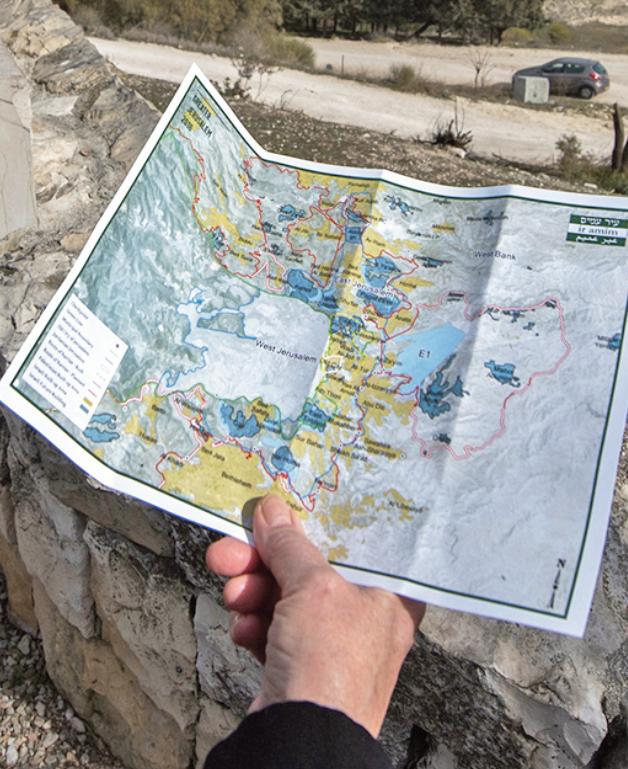
to Israelis and Palestinians.
“Pope Leo XIV has called for today, the commemoration of the Queenship of the Blessed Virgin Mary, to be a day of prayer and fasting for peace in the Holy Land, Ukraine, and the world’s conflict zones. We hold in our
prayers all parties seeking a just and lasting peace between Israel and Palestine.
“NoteThe Holy See recognised the State of Israel with the ‘Fundamental Agreement’ in 1993; and the State of Palestine through the ‘Comprehensive Agreement’ in 2015.
About a month ago, I ventured into the twists and turns of a cave shaped by a glacier.
The force of its slow movement created surreal shapes, making me feel as if I were in a liminal space between dream and reality. I couldn't help but feel a sense of anxiety, as tons of melting ice stretched out above my head, barely allowing any daylight to filter through from outside.
Being there was also like being in a real cathedral sculpted by nature. Intense blues and multiform ice created an aesthetic that could only speak to me of the magnificent Creation.
At the same time, I was overcome by a kind of existential sadness, knowing that these wonderful bodies of ice are on their way to disappearing.
This process is accelerating due to climate change and the inability of our international
system to restrain global warming more quickly. The IPCC (International Panel on Climate Change) has warned that this is the crucial decade for radically curbing emissions of fossil fuels and other gases that contribute to the greenhouse effect caused by human activity. However, the difficulties experienced in climate negotiations seem to fall short of the demands and urgencies.
In the Society of Jesus, we often say that there can be no peace without justice, and here in Chilean Patagonia, contemplating the rapidly melting glacier, I cannot help but think of the 'injustice' being done to ecosystems that, silent in the negotiations, cannot cry out for respect. Pope Francis spoke in Laudato Si' of listening to the cry of the earth and the cry of the poor. In this case, listening to the cry of a rapidly disappearing glacier means sharpening our hearing and all our senses to realise that silence or tranquillity can mask a false sense of peace.
For years, I have studied glaciologists who are dedicated to researching melting glaciers. I
follow them on their expeditions, in laboratories, and also in international negotiation settings, such as the COP process that arose from the United Nations Framework Convention on Climate Change (UNFCCC). From their particular scientific practice, they seek to communicate the drama that is happening to the cryosphere across the planet.
It is urgent that we ask ourselves, from our particular reality, how we can hear that often imperceptible cry of the earth, plundered by a system that does not coexist with, but rather destroys, our common home.
It is a great challenge, because violence is often slowly exerted on the ecosystem, which will only be perceived in tens or hundreds of years, as with many of the glaciers in our mountains. Its effects will not only be on the glaciers themselves but on all other members of the ecosystems (including human beings) in which they are found.
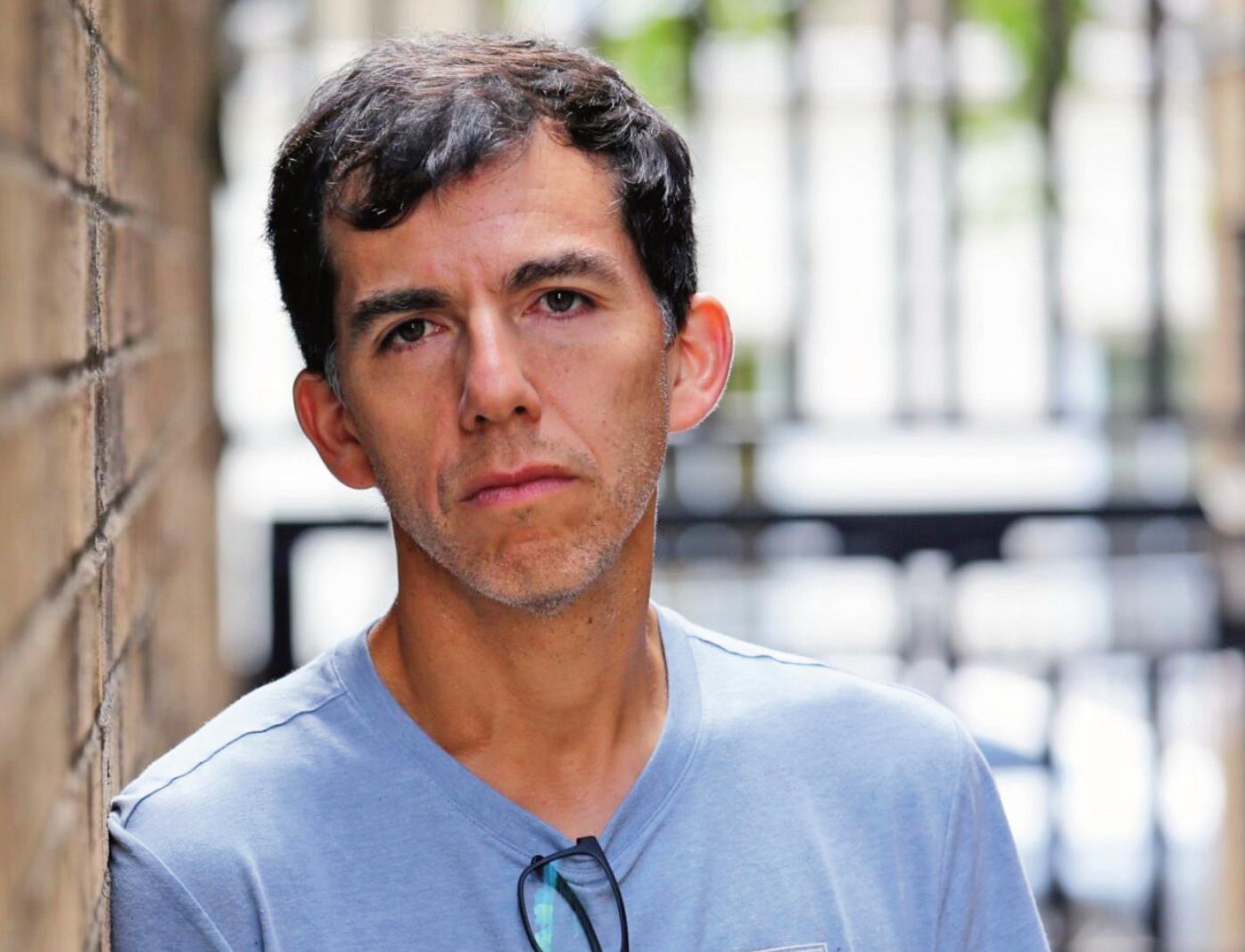
And worst of all, among human beings, those most affected will be, as always, the most vulnerable and poorest in our societies.
Cristóbal is a Chilean Jesuit priest. He is a doctoral candidate in Socio-Cultural Anthropology with a DE in Environmental Humanities and a DE in Science and Technology Studies from the University of California, Davis. In his doctoral project, Emilfork studies the practices of generating scientific knowledge about melting glaciers in Chilean Patagonia and the Antarctic Peninsula.
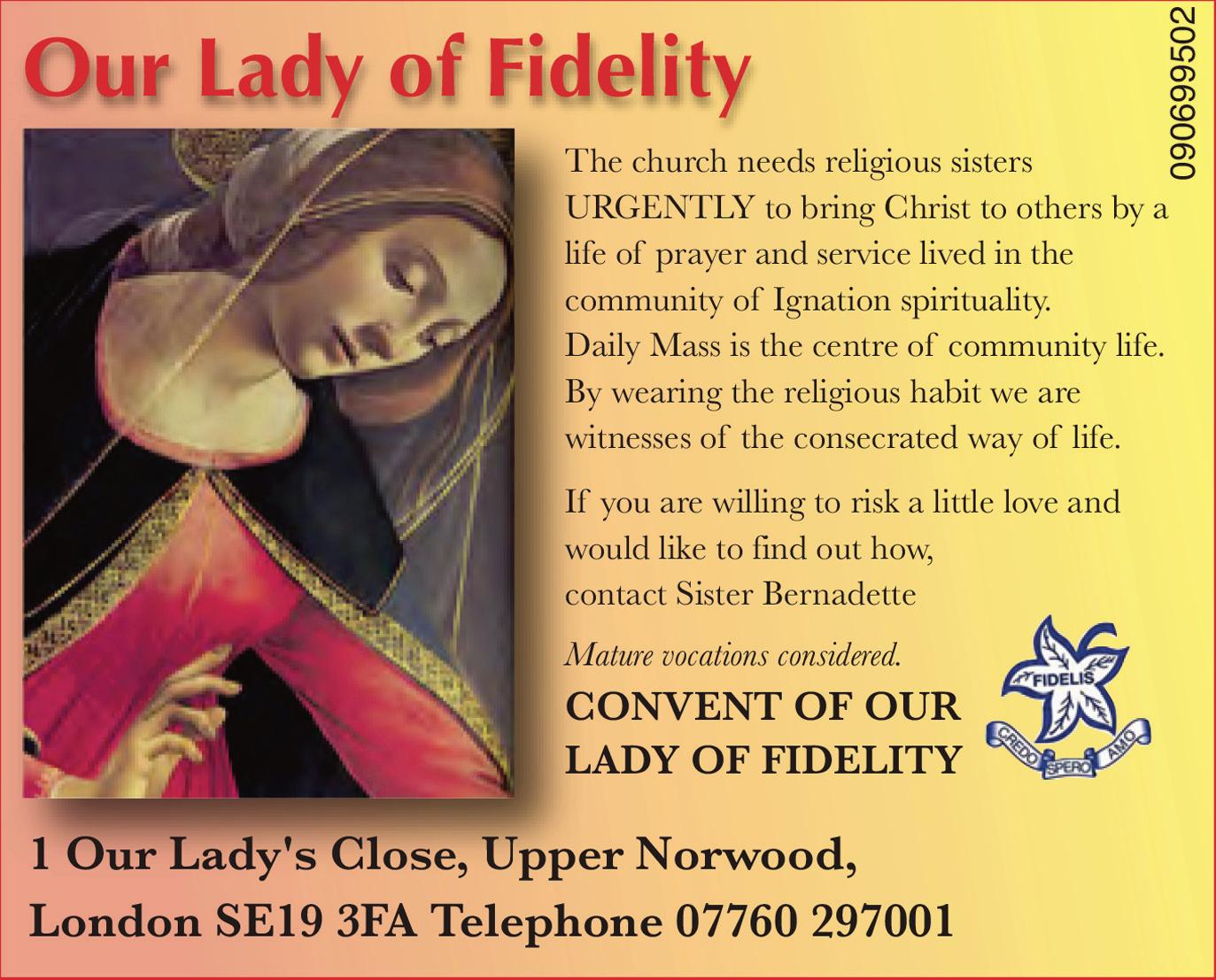

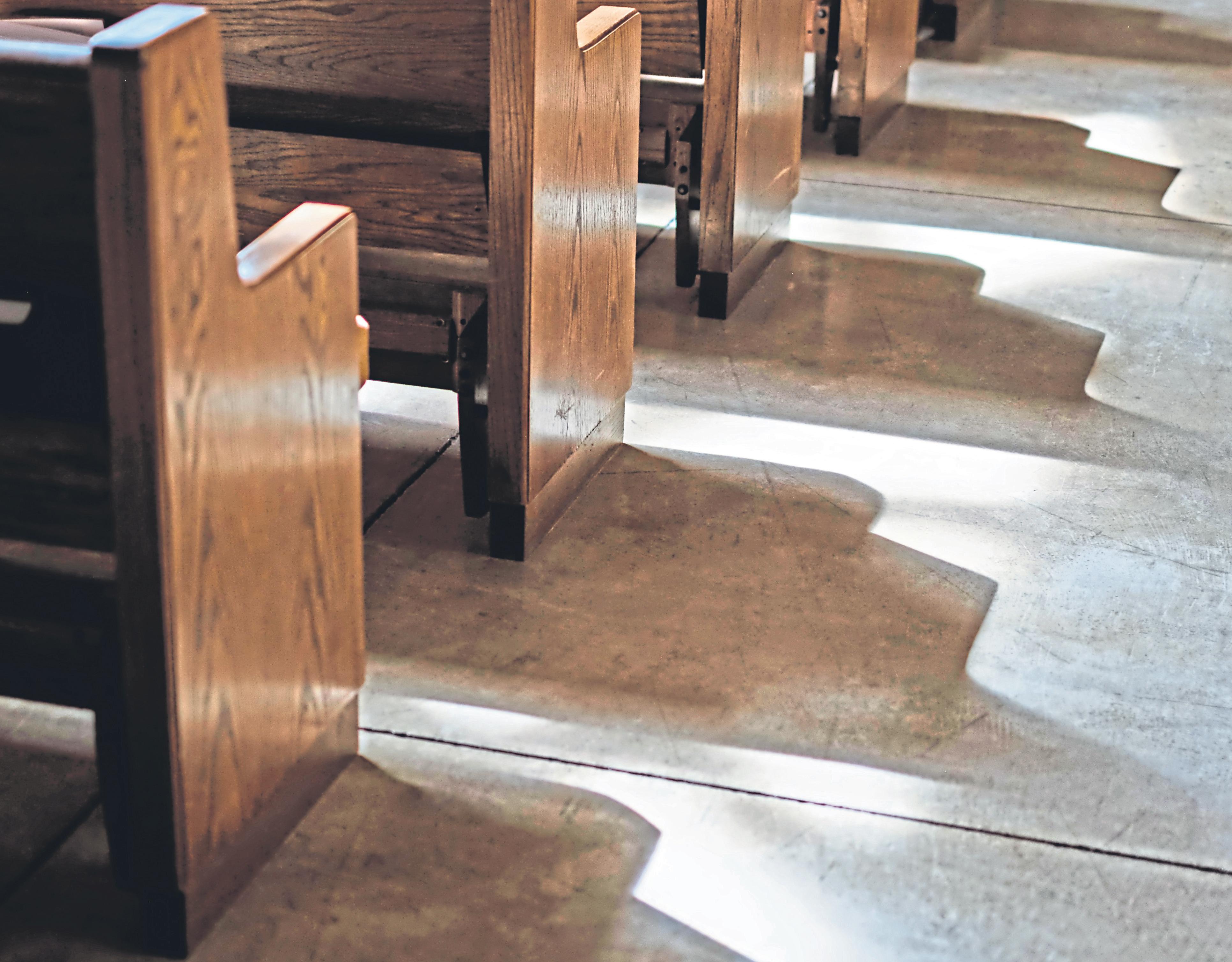


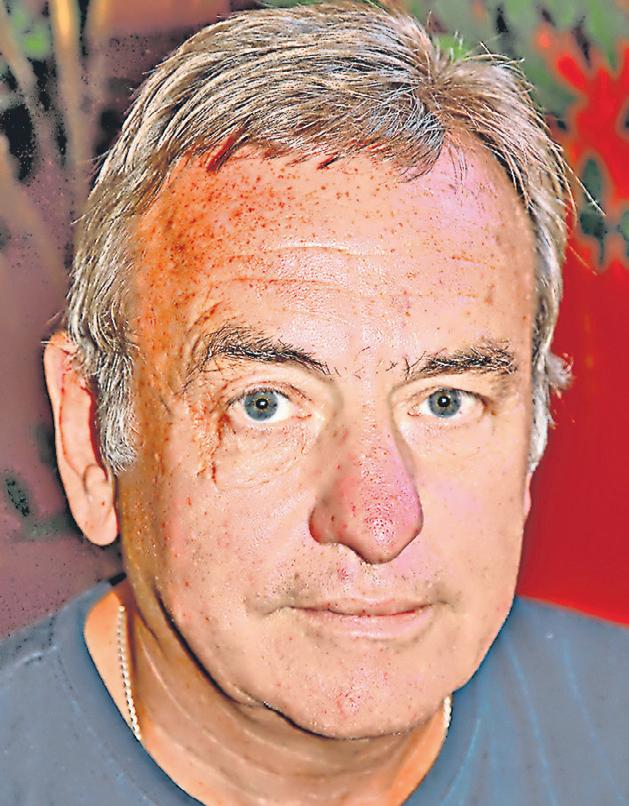
Dr Jay Kettle-Williams


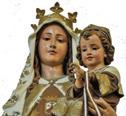


the scaffold in order to avoid the agonies of summary execution.





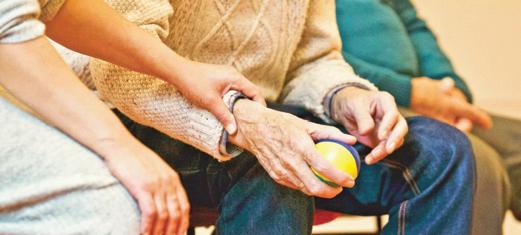













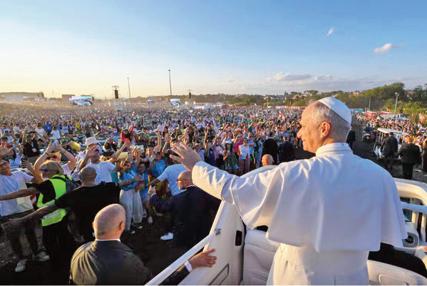

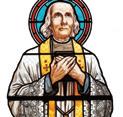
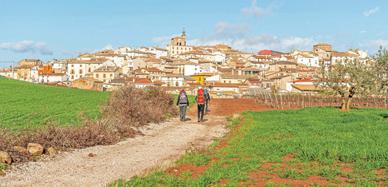


We are now in the ‘Season of mists and mellow fruitfulness’, so identified in the poem To Autumn by English Romantic poet John Keats (31 October 1795 - 23 February 1821), inspired after having taken a walk near Winchester one autumnal evening. The autumn months (1 September - 30 November) - straddle where we are now, in October, the month dedicated to the Holy Rosary.
By this time in 1605, Guy Fawkes (13 April 1570 - 31 January 1606) and his fellow conspiratorsamong whom he did not hold the highest rank – had their plans to blow up parliament in an advanced state of readiness. Fawkes had previously converted to Catholicism. He left for mainland Europe, where he fought for Catholic Spain in the Eighty Years’ War against Protestant Dutch reformers in the Low Countries. He then travelled to Spain to seek support for a Catholic rebellion in England but without success. Fawkes, also known as Guido Fawkes while fighting for the Spanish, had then enrolled as a member of the group of provincial English Catholics involved in the Gunpowder Plot of 1605 to overthrow the Protestant legacy of Henry VIII, King of England from 22 April 1509 until his death in 1547.

Following the failure of the plot, Fawkes was sentenced to be hanged, drawn and quartered. However, at the moment of his execution on 31 January 1606 he died of a broken neck: he was about to be hanged when, according to some sources, he deliberately jumped from
A contemporary of Guy Fawkes, notable not so much for his ability with the sword but rather for his ability with a quill, was William Shakespeare (April 1564 - 23 April 1616). Much debate, ever inconclusive, has ranged over time as to whether Shakespeare was a recusant Catholic, a fifth-columnist, closeted/cupboard Catholic, not a Catholic at all, a lip-serving Protestant or of no faith whatsoever. Take your choice. However, references in his works and life - which I leave to scholars better positioned than I to expound upon - do point to a Christian faith which Shakespeare perhaps hid from public view. So that would point to him being definitely Catholic.
Shakespeare’s profusive quill and worldwide recognition sustained over time, arguably outstripping Fawkes’ renown, bring to mind the quotation ‘The pen is mightier than the sword’, first written by novelist and playwright Edward Bulwer-Lytton in 1839 in his historical play about the Frenchman Cardinal Richelieu.
Another Frenchman, François-Marie Arouet (1694 - 1778) born some fifty years after Fr. Richelieu (1585 - 1642), stood on the opposite side of the fence from Guy Fawkes, from the Cardinal and even presumably from William Shakespeare. Monsieur Arouet, known by his nom de plume Voltaire, was a French Enlightenment writer, philosopher, satirist and historian. Famous for his wit and his criticism of Christianity and of slavery, Voltaire was an
advocate of freedom of speech, freedom of religion and separation of church and state. There has always been the question of Voltaire’s belief in or lack of belief in God. Was he a deist, believing in the existence of a supreme, non-interventionist being, or was he a follower of Spinozism, which deems that God and nature are one?
I once saw that dilemma scrawled, with humour, on the wall of the gentlemens’ toilet in the Reading Room of the British Museum. It read:
‘God is dead’. It was signed ‘Voltaire 1694 - 1778’.
Underneath was added in a different yet firmer hand:
‘Voltaire is dead. God, 1779’.
As we recognise from Shakespeare’s comedies, the bard himself was well endowed with what some would consider that Godgiven gift of a sense of humour, often ably employed as a caustic weapon.
That said, let’s all now enjoy the mists and mellow fruitfulness of the season.

Dr J L Kettle-Williams is an experienced business communications consultant and wordsmith (tutor, writer, translator).
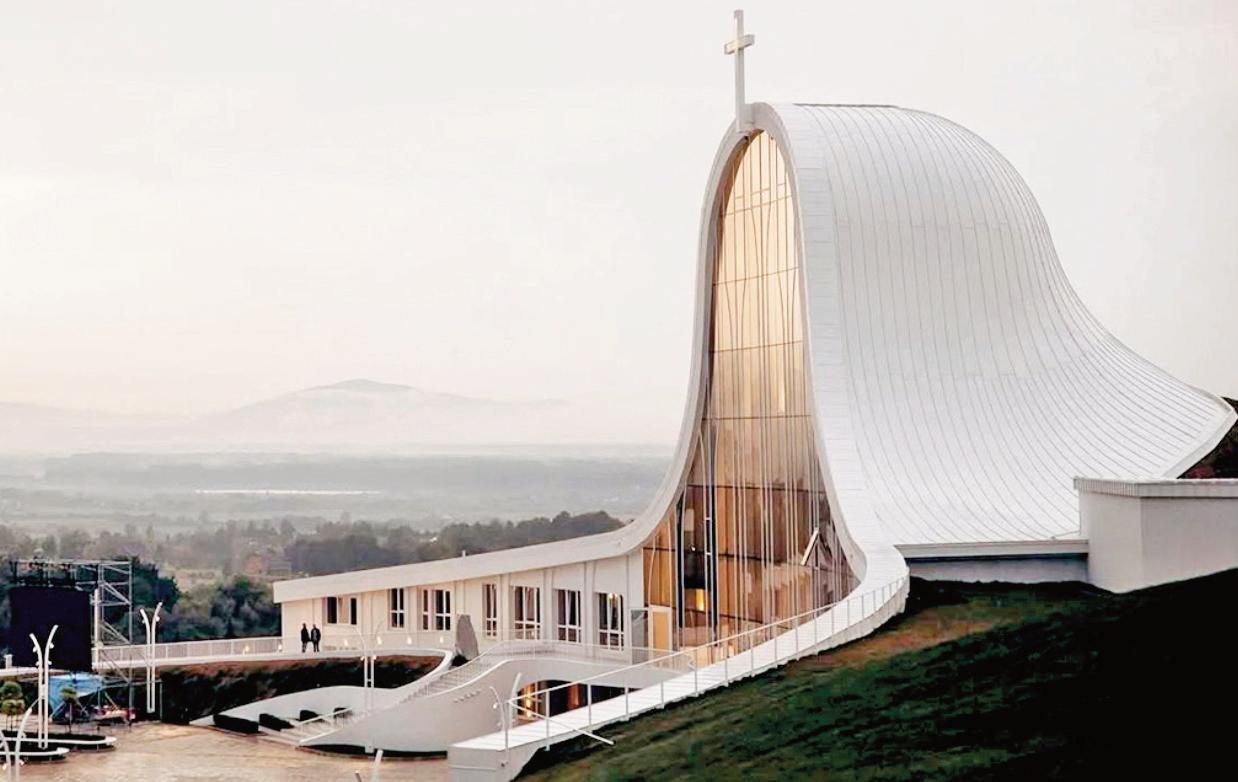
On Friday, 22 August, the Eparch of the Ukrainian Greek Catholic Eparchy of the Holy Family of London, Bishop Kenneth Nowakowski, celebrated the blessing of a newly-built Basilica in the village of Starun, Ivano-Frankivsk, in western Ukraine.
His Beatitude Sviatoslav Shevchuk, Major Archbishop of Kyiv–Galicia and head of the Ukrainian Greek Catholic Church, blessed the Basilica dedicated to Bishop Martyr Simeon Lukash in the presence of thousands of pilgrims, hundreds of clergy and religious, Archbishop Volodymyr Viytyshyn, the Papal Nuncio and more than 20 bishops.
The blessing was made on a day that Pope Leo XIV dedicated to fasting and prayer for wartorn Ukraine and Gaza, as well as the world’s other wars and conflicts.
Bishop Nowakowski explains why Simeon Lukash, a Ukrainian Catholic Bishop martyred in Soviet times, remains an inspiration for Ukrainian Catholics:“Prayer and deep faith in God and unity with ‘Peter’ was the bedrock that allowed the bishops, clergy and religious along with the faithful of the Ukrainian Catholic Church to endure their several decades of clandestine existence in the last century in the Soviet Union.
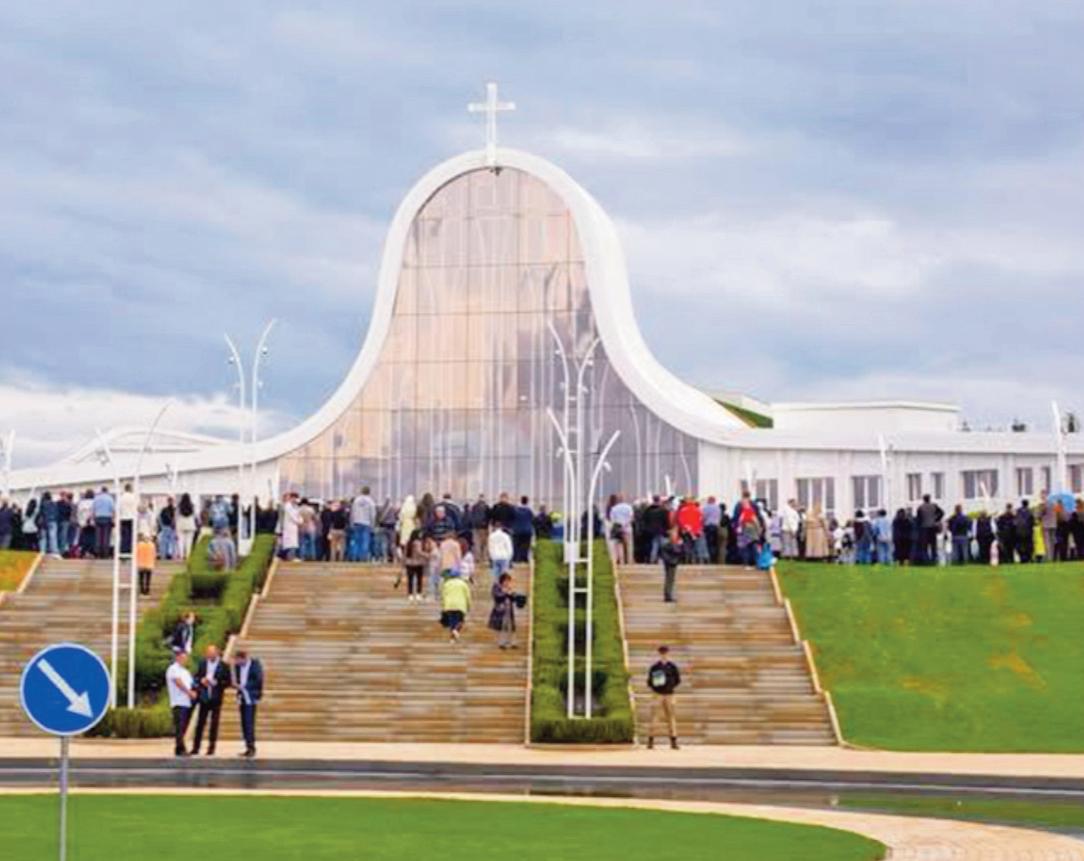
“One of those valiant people was Bishop Simeon Lukach, he was a Ukrainian Catholic Bishop who was martyred during the Soviet period. In 2001 he was Beatified by Pope St John Paul II. Today we celebrate his feast day, on the exact day of his death in 1964. Since the collapse of the Soviet Union people have been gathering to pray in his home town where he died. It is also today that His Holiness Pope Leo
XIV has asked Catholics to pray and fast for peace in the world – especially in Ukraine.
“In the spirit of this special day His Beatitude Sviatoslav consecrated the Altar and blessed this new Basilica which has become a special place of spiritual healing during this time of war.”






























and stories from across
and beyond to



St Elizabeth of Portugal in Richmond upon Thames has put Eucharistic adoration at the heart of its youth ministry and the results are inspiring
By putting Eucharistic adoration at the heart of their youth ministry, St Elizabeth of Portugal in Richmond upon Thames has built a thriving youth group.
Previously, only a handful of teenagers attended the sessions. But now, they have around 100 teenagers and young adults actively involved in their youth ministry.
Fr Stephen Langridge, the Parish Priest of St Elizabeth of Portugal, said Eucharistic adoration is “effective as a means of evangelising young people” because they are “drawn out of themselves into a journey, a journey of communion with the Lord”.
Fr Stephen said Eucharistic adoration inspires young people because “it gives an opportunity to step back from technology, from the pressures of social media”, but crucially “it gives them a chance to be drawn out of themselves into a relationship with God”.
Klara, a young woman who attends the youth group, said Eucharistic adoration has “really helped me get closer to Jesus because I’ve been able to communicate with him more freely and openly, and it just encourages my prayer more with him right there in front of me. And yeah, I just love it”.
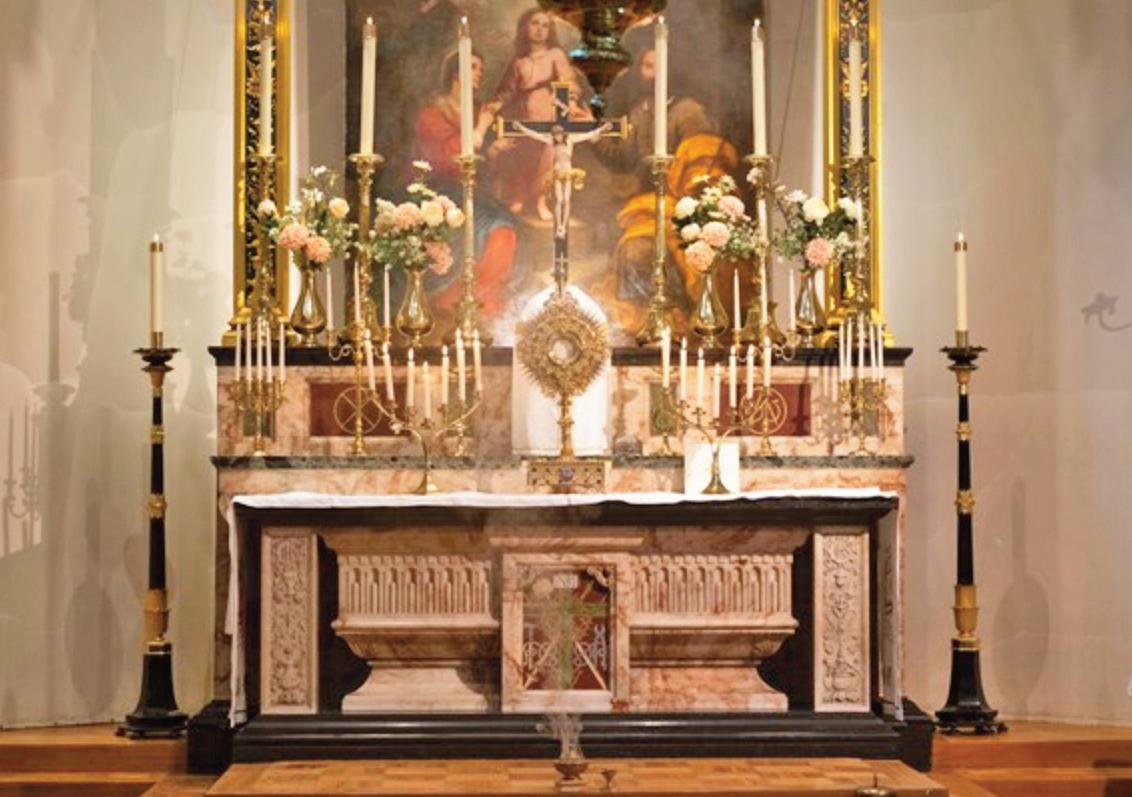
Clarke, the Director of Youth Ministry at St Elizabeth of Portugal, said the reason Eucharistic adoration appeals so much to young people is because “ultimately, adoration is not entertainment. It is encounter and it is encounter with Jesus, and therefore, it is the best thing we can ever give to them”.
This moment of encounter is crucial, as Fr Stephen explains: “In the Gospels, there are some Greeks and they go to Philip and say: we want to meet Jesus, and that meeting of the Lord is the beginning of a change in one’s life. Because when you meet Christ, you reevaluate everything. You recognise that you are loved”.
A key part of the ministry is supporting families to be families of faith. Georgia explains that since coming to adoration, one of the girls now has morning prayer with her family. Fr Stephen added that what children and young people “really need to hear is that they are loved. I often think of parents who work so hard to provide things for their children, and I find myself saying to parents: they do not need things, what they need is you. They need you to be at home, they need to be assured that they are loved for who they are… and that’s when they learn to love in return”.
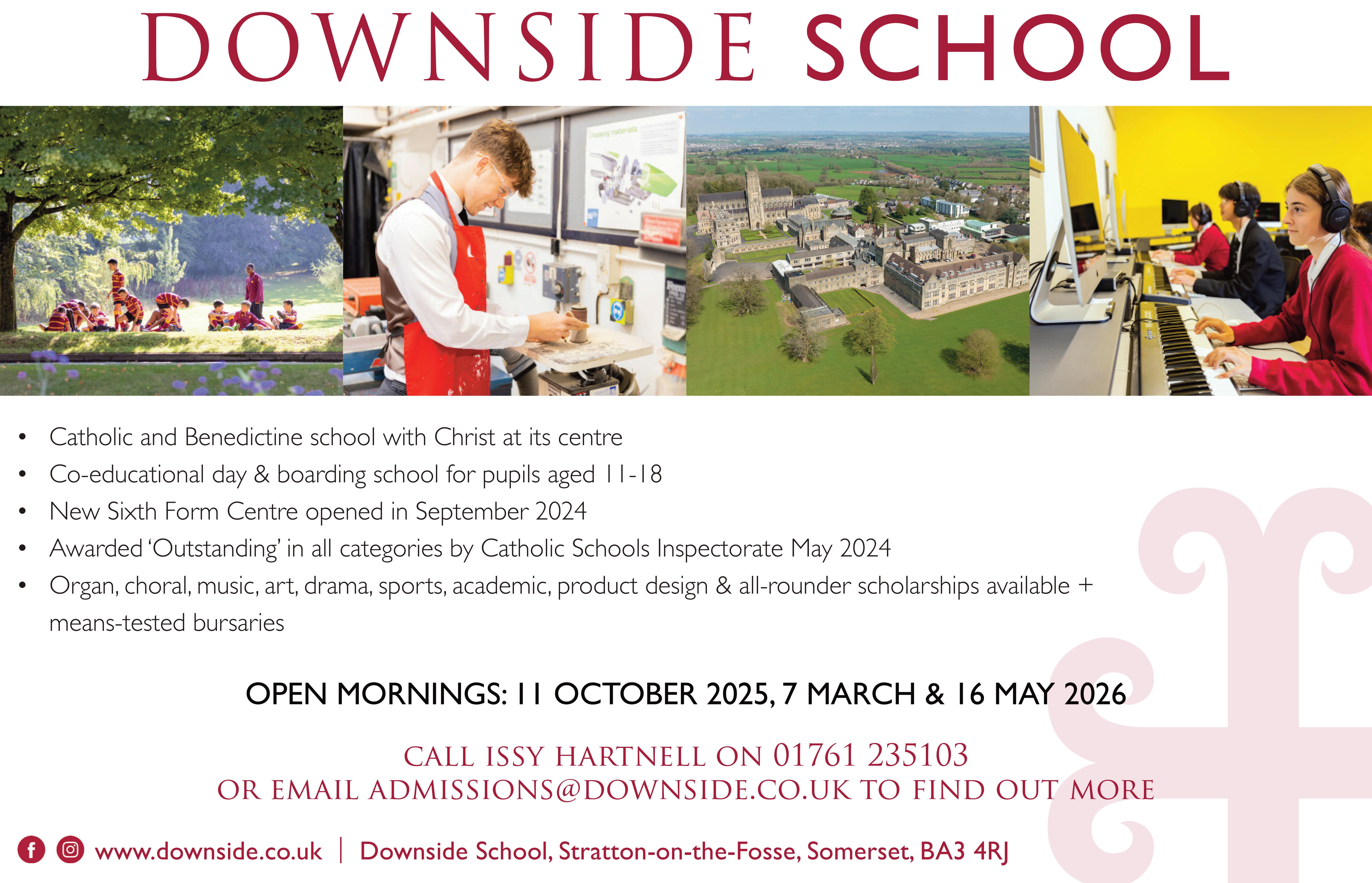
Recently, I received an invitation from the Dicastery for Dialogue in Rome and the Apostolic Nunciature in Bangladesh to join a delegation from Rome during its visit to Dhaka, Bangladesh, for a week-long programme on engaging in dialogue with people of other faiths, particularly Muslims
This esteemed group included His Eminence George Jacob Cardinal Koovacad, the Cardinal Prefect; Monsignor Indunil Kodithavakku, the secretary of the Dicastery; and Fr. Marcus Solo SVD, who oversees the Islam Desk for Asia and Pacific at the Dicastery. The programme was jointly organised by the Dicastery for Dialogue, Rome, the Catholic Bishops' Conference of Bangladesh, and the Apostolic Nunciature in Dhaka, Bangladesh. Among the scheduled activities was a visit to a mosque, which added a meaningful element to our itinerary.
It was truly a significant occasion for us, the Christian delegation, to receive a warm welcome in this hallowed space. This gesture of hospitality carries profound historical importance. The Prophet Muhammad, peace be upon him, graciously received a Christian delegation during his lifetime. In more contemporary times, we have witnessed prominent figures such as Pope John Paul II, Pope Benedict XVI, and Pope Francis visiting mosques. Notably, Pope John Paul II made history as the first pope to enter a mosque during his visit to Syria in 2001. The sight of him, a frail figure, entering the Umayyad Mosque in Damascus with deep reverence, was a pivotal moment in enhancing relations between our faiths. In 2009, Pope Benedict XVI visited the Al-Hussein Bin Talal Mosque in Jordan, underscoring the significance of acknowledging both Muslims and Christians as sincere worshipers of God. Pope Francis has continued this path of unity by visiting the Grand Mosque in Abu Dhabi in 2019 for an interfaith gathering, where he emphasized the necessity of tolerance and respect among individuals of diverse faiths. Earlier, during his visit to the Blue Mosque in Istanbul in 2014, he addressed the themes of unity and peace among humanity, and just last year at the Istiqlal Mosque, he called upon all people of goodwill to foster harmony and engage in dialogue for mutual respect and peaceful coexistence.
The actions of Pope Paul VI, Pope John Paul II, Pope Benedict XVI, and Pope Francis reflect the principles outlined in Nostra Aetate, an important document from Vatican II that conveys a profound respect for Muslims. Each of these popes engaged with Islam and its followers in meaningful ways. Pope Paul VI
made it clear that differences in faith should not lead to conflict, asserting that Islam is not an enemy of Christianity. He emphasized that other religions pose no threat to Christianity and urged Christians to foster an environment conducive to dialogue among all faiths. Similarly, Pope John Paul II positioned himself as a bridge builder between Christianity and Islam, recognizing that the Spirit of God is also active in different religious traditions. Pope Benedict XVI promoted authentic dialogue aimed at both purification and enrichment, encouraging quality interactions among prominent thinkers. Meanwhile, Pope Francis exemplified how every person of faith should behave, providing fresh inspiration for Christian engagement with Muslims. He called on all people of goodwill to respect and love one another as brothers and sisters, to empathize with the suffering of others, and prayed that no one would misuse the name of God to perpetrate violence, urging collective efforts towards justice and peace. As I entered Baitul Mukkaram mosque, I felt a wave of consolation remembering the teachings of these recent popes.
I had the privilege of studying at Aligarh Muslim University (AMU) and Jamia Millia Islamia (JMI), where I earned my Master's in Islamic Studies from AMU and went on to receive a doctorate in the same field from JMI in New Delhi. My doctoral thesis was supervised by the esteemed Islamic scholar, Professor Akhtarul Wasey.
Throughout my time in Aligarh and Delhi, as a student of Islamic Studies, I engaged in meaningful dialogues with my peers, often meeting at a tea stall on campus or gathering beneath the shade of a tree near one of the mosques. During those quieter moments near the mosque, I found myself reflecting on the nature of God and humanity, often inspired by the Mihrab. The Mihrab acts as a guide for Muslims, directing their prayers five times a day. I frequently contemplated its significance for me as a Christian. While it directs Muslims to worship one God, who has "spoken to men and women" through the prophets, culminating in Muhammad, peace be upon him, it also resonates with my faith in God's revelation to humanity through Christ. I view the Mihrab as a beacon illuminating my
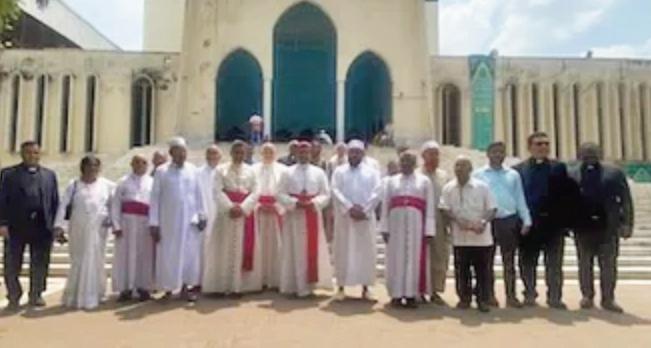
conviction in Christian truth. Are we not both devoted worshipers of God? In that understanding, I find comfort knowing that we seek to worship one God, despite our significant differences in belief.
In closing, I want to emphasise my strong belief that personal engagement with Muslims fosters mutual understanding and unveils our shared humanity and desire for peace. I am convinced that regular interactions with people from diverse backgrounds can gradually cultivate a culture of dialogue. Cardinal Fitzgerald, a prominent authority on
Christian-Muslim relations, explains that Nostra Aetate illustrates how "Christians and Muslims collectively uphold peace, freedom, social justice, and ethical values." He elaborates on this by stating that "the scope is broad and can encompass vital issues such as the protection of life, marriage, family, environmental stewardship, and endeavors toward nuclear disarmament." To me, dialogue is a conscious decision to rise above our differences, fostering goodwill and a spirit of collaboration for the common good.
Joseph Victor Edwin SJ
£5k grants available to respond to the 'signs of the times' to build social justice in the UK
Bishop Richard Moth, chair of Catholic grant-making charity, The Charles Plater Trust (CPT), has announced the opening of the funder's 2025 small grants programme.
Opening the grant funding opportunity, Bishop Richard Moth said: "We face profound social justice challenges as a society today. Marking the papacy of Pope Leo XIV and, also, with a relatively new government in place in this country, it is timely to offer a new funding opportunity to charity partners to pioneer new ways in which Catholic social teaching in action can contribute to a new vision for our society, where all belong and can flourish."
CPT launched its small grants programme in 2021, and funds projects that contribute to social justice through education in its broadest sense.
Charities and CICs with an annual income below £100,000 are eligible to apply for a small grant of up to £5,000 on the Charles
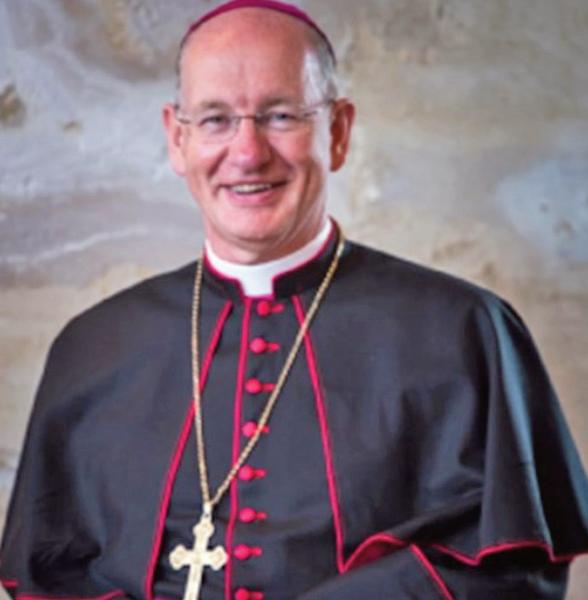
Plater Trust website. The closing date for applications is 5pm on Thursday 9th October 2025.
Grant application details can be found at: www.plater.org.uk/apply
Or for an informal chat about the funding opportunity, please contact Philomena Cullen, Trust manager, email: plater@cbcew.org.uk
As the Terminally Ill Adults (End of Life) Bill is being considered at length in the House of Lords, we reiterate our firm opposition to the bill in principle and in practice. Despite being described by proponents as the safest of its kind, the bill remains unworkable. It puts the safety of our healthcare institutions, professionals, and patients at risk.
The Bill threatens the future of care homes and hospices that would not otherwise provide assisted suicide, as doing so would violate their core mission and ethical principles. The House of Commons rejected an amendment which would allow employers to prevent their employees from facilitating assisted suicide. Cardinal Nichols and I previously noted that "a right to assisted suicide given to individuals is highly likely to become a duty on care homes and hospices to facilitate it." As a result, there is a real danger that some care homes and hospices may be forced to significantly limit or even fully withdraw their services.
The bill undermines the duty of care of healthcare professionals by permitting them to help patients to end their lives, fundamentally changing the relationship between the medical professional and the patient.
https://ourdutyofcare.org.uk/declaration/
Furthermore, as the Catholic Medical Ass (CMA) has stated, the bill's conscience clause is not adequate, despite assurances from the bill's proponents. Many doctors will effectively be unable to opt out of cooperating with the procedure, because of the duty to direct patients to information and to where they can have a preliminary discussion.
This bill puts the lives of vulnerable patients at risk due to inadequate safeguards against
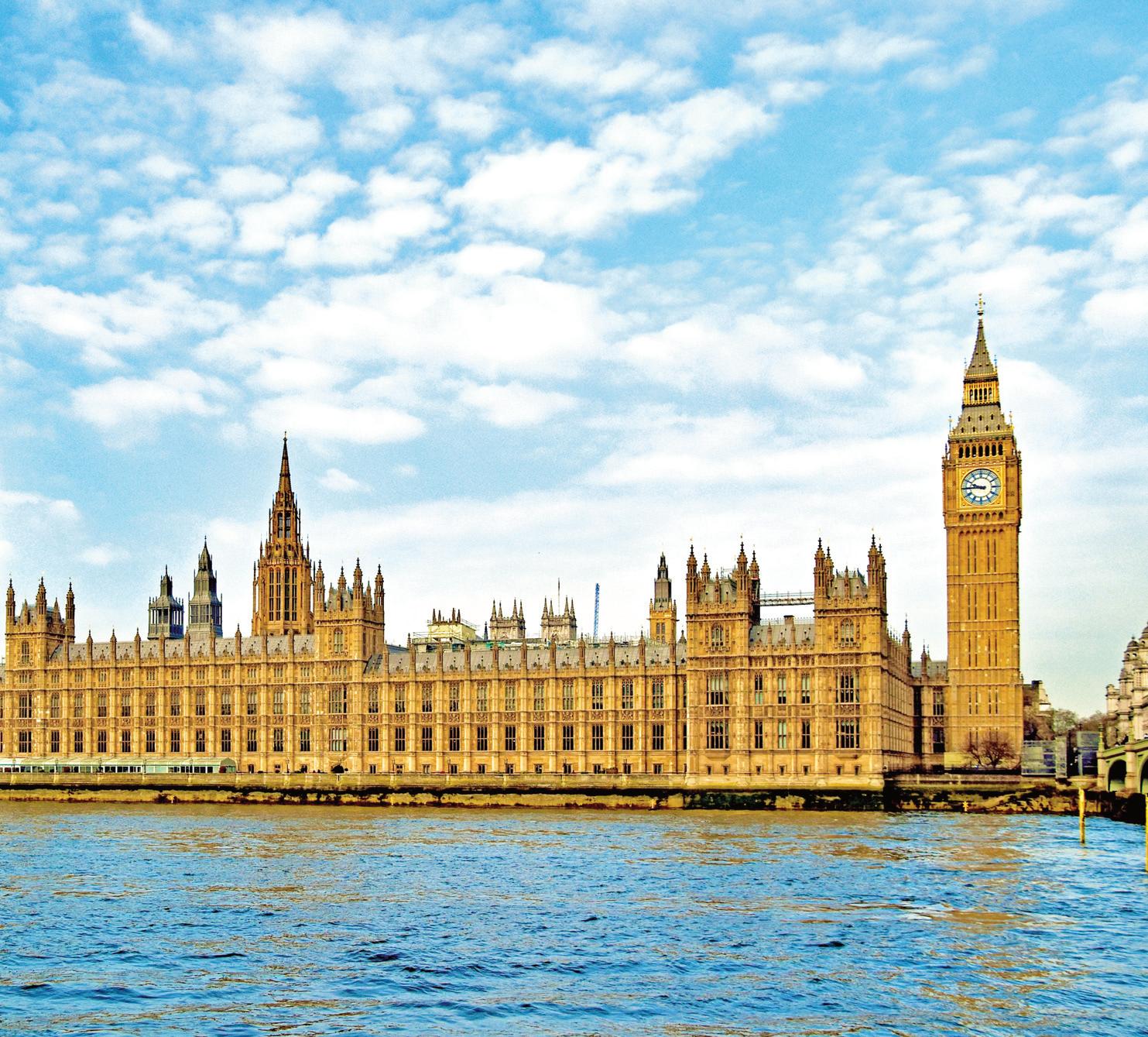
coercion. Evidence from other jurisdictions indicates that patients often feel pressured to choose assisted suicide because they feel as though they are a burden on those caring for them. In addition, countries such as Canada demonstrate that wherever assisted suicide is initially introduced for a limited group, the criteria quickly expand to include the nonterminally ill, and soon those without mental capacity.
Moreover, introducing assisted suicide does not reduce the overall number of suicides. Overall suicide numbers increase when assisted suicide and euthanasia made legal, research suggests.
Priority must be given to the provision of palliative care which, though excellent where provided, is patchy in terms of its provision around the country. The legalisation of assisted suicide will inevitably further undermine the resourcing of palliative care. Where such provision is absent, individuals will inevitably feel pressured to end their lives.
A call to prayer and action
We continue to call for prayer and action. I urge you to contact members of the House of Lords and in particular share your personal or professional experience on this important matter.
The Catholic Safeguarding Standards Agency regularly carries out a ‘public call for information’. These are opportunities for anybody with information to share with them, ahead of their inspections, to come forward in a safe way. They will assess whatever Information about safeguarding comes in, and it may directly contribute to audits and inspections of dioceses and religious life groups.
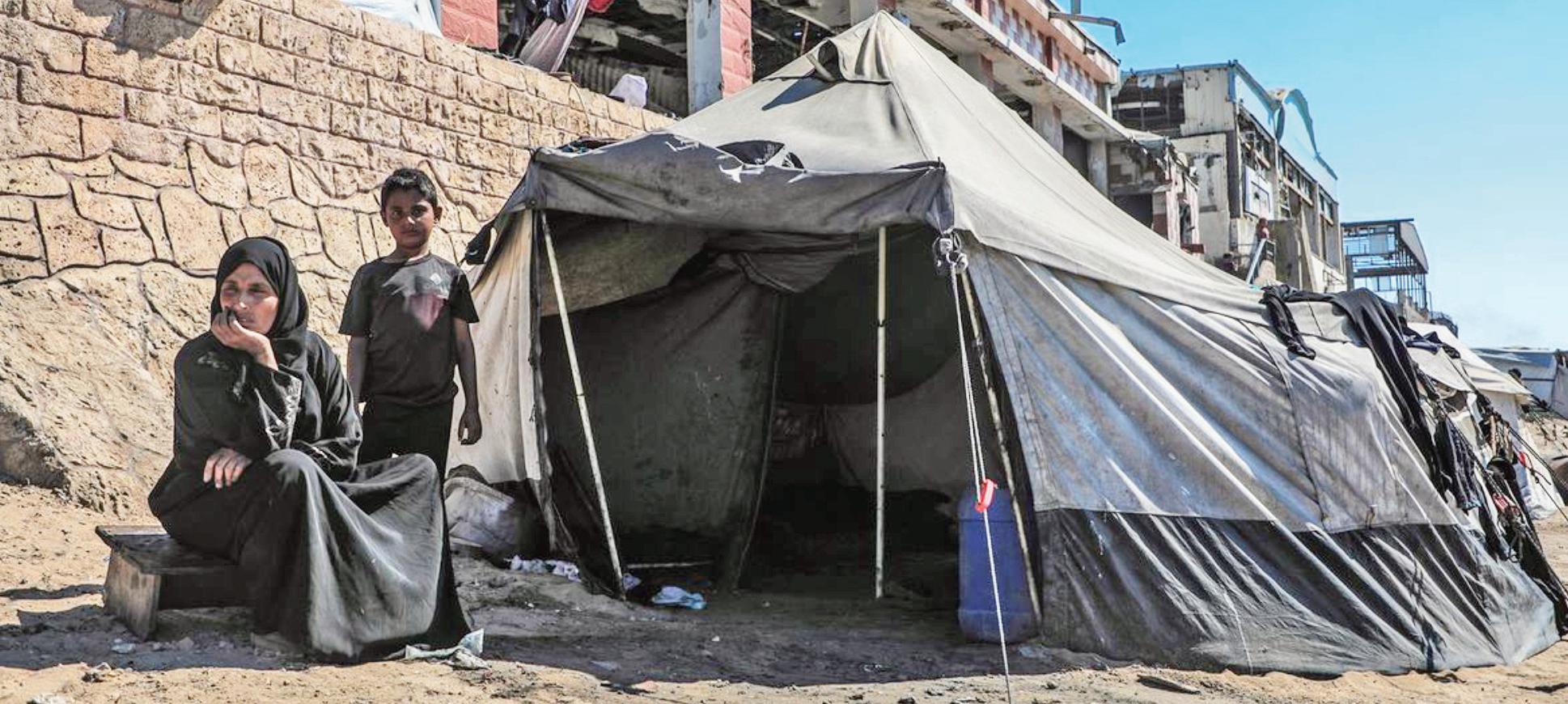
In the Gaza Strip, hope may be all that is left but it is not enough to keep people alive, a veteran humanitarian said on Friday, calling for more action to end the conflict and stop the bloodshed.
Olga Cherevko, Spokesperson in Gaza for the UN aid coordination office OCHA, warned that history will not judge the international community "based on the speeches that we made" but rather on actions.
Speaking from Deir Al-Balah, she delivered a blunt message: "When Gaza burned, and children starved, and hospitals collapseddid you act?"
She said this past Tuesday, Gaza City "was handed a death sentence", with hundreds of thousands of battered civilians ordered to flee to an already overcrowded area where "even small animals have to search for spaces to squeeze between to move around."
Across the Strip, the situation is dire. A friend texted her on Thursday saying that they tried to find space in the south, but there was none.
"Dignity and hope have been stripped away, with every killing of a loved one, with every strike on a civilian lifeline, with every denial of access."
She said that "the race against time, against death, against the spread of famine, feels as if we as humanitarians are running through quicksand. Even more so as humanitarian convoys are too often denied, delayed or obstructed by the Israeli authorities."
She noted that even amid hardship "humanity shines", pointing to "the Palestinian doctors, nurses and paramedics working around the clock, often without pay, medicine or electricity."
This also includes aid workers from UN agencies, the Red Crescent and other organizations "delivering food, medicine and clean water under fire", as well as ordinary people who share the little they have with strangers.
"In every act of care - a refusal to let cruelty define the future. Proof that even in the darkest times, the human spirit endures," she said.
Ms. Cherevko shared that she is often asked if she has any hope left.
If you are a survivor of abuse in the Catholic church, we recognise what a difficult step this may be for you. For some, it may be traumatising. Support is available. Thank you for your courage. catholicsafeguarding.org.uk
If you have information to share, you can remain anonymous, or you can arrange to talk with them if you prefer.
The public calls for information are for anybody with information to share which
may help improve safeguarding and prevent harm. You may be a survivor, a lay employee, a parishioner, or a volunteer, or have a different role.
To find out more scan the QR Code below

"His 8-year-old cousin was killed instantly in an Israeli strike together with several other children last week while waiting for some bread to be baked," she told journalists at UN Headquarters.
The friend's daughter, who recently turned two, has known nothing but war, she added. "The unmistakable smell of death is everywhere - a grisly reminder that the ruins lining the streets hide the remains of mothers, fathers, children," Ms Cherevko continued.
"Humans who used to laugh, cry, dream. Their lives cut short by the war's killing machines, many to never be found again."
As humanitarians drove back into Gaza on Thursday, distraught people crowded around their convoy "pleading for this horror to stop," she said.
"Hope may be all we have left, so we must nurture it," she said. "But hope alone won't keep people alive. Urgent decisions are needed that must pave the way to a lasting peace before it's too late."
She stressed that "the people of Gaza are not asking for charity. They are asking for their right to live in safety, in dignity, in peace," adding that "our humanity - yours, mine, all of ours - demands that we act now."
She concluded her remarks by insisting that "today, and every day, is a new chance for the international community to match words with action. Don't miss it as it might be the last."
The secretaries general of three major Catholic organizations -- Pax Christi International, Caritas Internationalis, and CIDSE - have published a statement in preparation for the UN's climate change conference, COP30, to be held in Brazil from November 10-21
As representatives of global Catholic networks committed to peace, justice, and care for creation, we unite our voices ahead of COP30 in Belém, Brazil, to affirm a simple yet urgent truth: there can be no true peace without climate justice, and no climate justice without peace.
The interwoven crises of ecological collapse, a fragmenting global order and unrelenting extreme poverty are not parallel problemsthey are entangled threads of a shared global threat. We are not simply facing a crisis of greenhouse gas emissions, of a confluence of border conflicts or regional poverty cycles. We are facing a convergence of mass suffering now and risks of future harm, perpetuated by a political and economic system that is at risk of coming completely undone. The state we're in is "a consequence of the collective refusal to think about future generations" (Laudato Si' 159), greed (LS9), shortsightedness (LS32) and which to solve needs "a new and universal solidarity" (LS14). Without action now, the interwoven crises the planet faces will continue to perpetuate and could take the planet towards its darkest hour unless there is a change of course.
Climate change is already exacerbating conflicts across the world, and this is a dangerous trend expected to intensify as the global temperatures continue to rise. The increasing frequency and severity of extreme events coupled with shifting resource availability and the rendering of land uninhabitable will lead to mass forced displacement of people. This in turn, risks further destabilising vulnerable regions and exacerbating existing tensions. In this context, climate action is not only an environmental imperative, but also a vital component of global peacebuilding.
The converging crises of climate change and global security are not only linked, but also born of the same short-sightedness, immorality and flawed logic. For decades, the pursuit of profit over people has shaped global systems, placing power in the hands of those
who benefit from destruction and division. The fossil fuel, the arms and financial industries, driven by enormous profit motives, have exerted disproportionate influence over politics, distorting democratic processes and obstructing efforts for climate justice and peaceful resolution. These industries thrive on instability, inequality, relentless extraction and oligarchic cronyism - leaving behind scorched land, broken communities, and a wounded world.
Today, we are facing common challenges that stem from a shared root. A global system increasingly shaped by short-term political interests, and concentrated power. Decision making is dominated by a few nations and private actors, distant from the communities most affected by conflict and climate change. The founding vision of post-war multilateralism, where every country - large or small - had a voice in shaping peace and progress, is being forgotten. Yet true multilateralism, like nature itself, depends on balance: just as every species has its role in the ecosystem, so too does every nation have equal value and voice in the global order. The shift toward a "multi-polar" world where "might makes right" threatens not only the hope of a peaceful future, but also our collective ability to address the climate crisis. Multilateralism demands much from powerful nations - above all, the courage to cede power for the common good.
But just as these crises are rooted in the same logic, they can be overcome through shared values. The path forward must be grounded in the solidarity of peoples, the common good of our shared home, and the principle of subsidiarity - ensuring that decisions are made as closely as possible to those most affected.
Above all, we must uphold the preferential option for the poor, ensuring that those who are most vulnerable are first in line for support, but empowered to lead. Translating these values into action means reimagining our global systems, reforming international financial institutions, ending fossil fuel
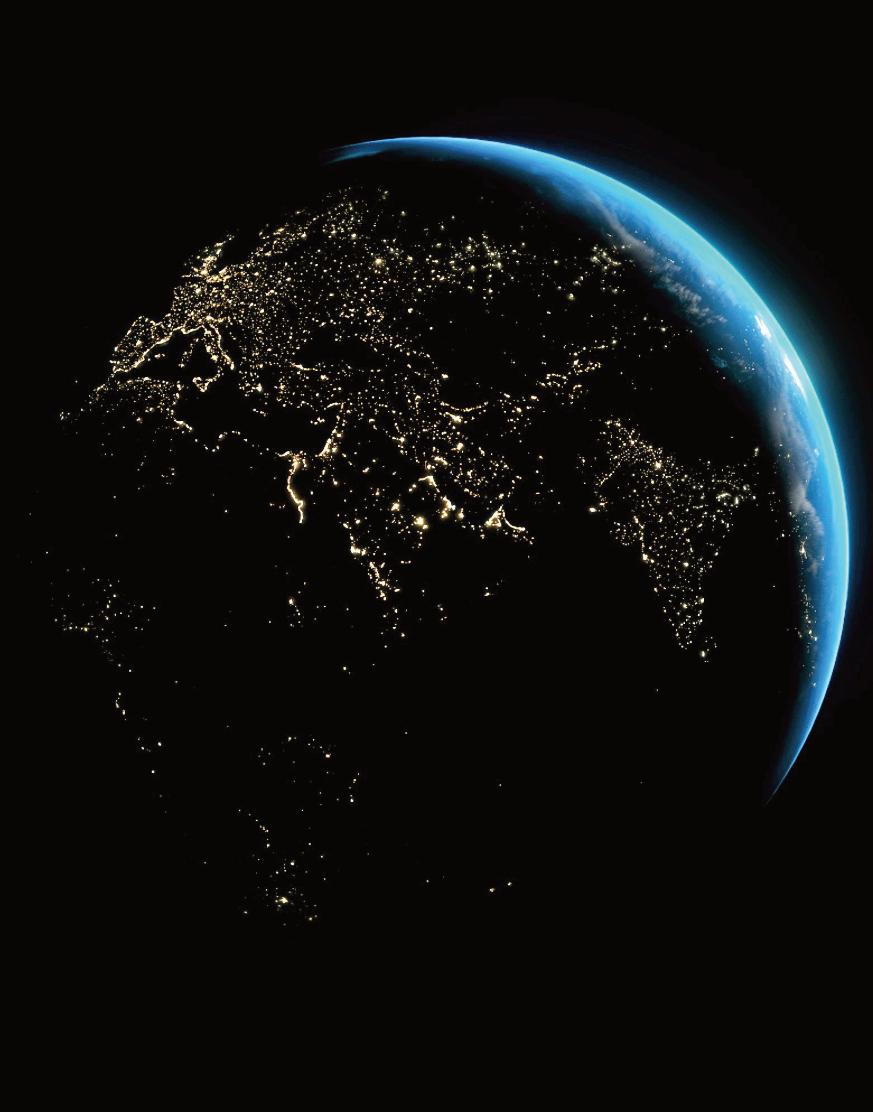
subsidies, and prioritising community-led solutions in climate and peacebuilding strategies. It means centering Indigenous knowledge and their right to live in harmony with their land, promoting debt justice, reducing the exorbitant military budgets and ensuring inclusive representation at decisionmaking tables, from the UN to local councils.
The moral imperative is clear but the tools are within reach. These timeless principles from Catholic Social Teaching offer not only moral clarity, but practical guidance for building a world that is both peaceful and sustainable. Pope Leo XIV reminds us that nonviolence, both as a method and a style, provides the foundation for how we confront the challenges of our time. In this light, active nonviolence becomes a powerful response to the crises we face. Communities peacefully resisting deforestation, opposing extractive industries, and advocating for sustainable development are doing so through nonviolent means-organising, legal action, and
international solidarity. These efforts, rooted in justice and respect for human dignity, are essential to the transformation we seek. We pray our leaders remember this spirit of nonviolence in their deliberations, remember the horrors of war, and try again to put the nonviolent pursuit of peace at the heart of their diplomatic engagements, knowing that the future of the planet depends on it.
Today we are raising our voices to join with Pope Leo, other faith leaders and people of good will in chorus calling to halt the march towards war, reverse course, renew our passion for peace and believe again that a peaceful world is possible; a green world is possible; a better world is possible.
Alistair Dutton
Caritas Internationalis
Josianne Gauthier CIDSE
Martha Inés Romero
Pax Christi International


You can use both sets of clues to solve the puzzle: the solutions are the same.
CRYPTIC Across
1 Enemy of Gideon's defeated during the witching hour, said one (9)
6 Musical about a High Priest (7)
7 Riddle to penetrate? (5)
9 Change in a little while going back to protect the testament (5)
10 Fielder's body parts used to take wickets in the end (3,4)
11 Foot part's essential to dancing, they say (6)
13 Grand aura about directions for the Holy Roman Emperor (6) 16 Hymn book each sailor kept (7)
18 One has a habit of getting into minicab bother (5)
20 Harsh being back at sea (5)
21 Bigbrewersarenuts,ridiculous(3-4)
22 Tyre here company backs after one phone order (9)
CRYPTIC Down
1 Recommendation when weather's bad in French wine area? (5)
2 Poles follow east Maine river banks to estate (7)
3 Saint Poles back from 2, and the Spanish, see in the morning (6)
4 One's no good in charge at first, but is very sweet (5)
5 Christian Roman's spreading mostly rubbish between Europe and America (7)
6 Paul's fellow soldier damaged pup's chair (9)
8 It runs in Iraq on Brussels tariffs top two phones supported (9)
12 Disturbance with fish supper only half wolfed down (5-2)
14 Spooks wreck a comeback, totally, for ancient language (7)
15 Frenchman's to the fore in Brexit – real European traditionalist on nationality (6)
17 'Beat retreat' code-word (5)
19 Gunners in the ascendant during support for Hebridean island (5)
QUICK Across
1 One of a tribe from whom Moses took a wife (9)
6 High Priest who opposed the Maccabees (7)
7 Soak;suffuse(5)
9 Eurofractions?(5)
10 Close fielding position in cricket (3,4)
11 Arch area of the foot (6)
13 The ------'s War: alternative, now dated, name for World War I (6) 16 Book of hymns or poems associated with the Old Testament (7)
18 Archimandrite;prelate(5)
20 Demanding;forbidding(5)
21 Large vats for steeping and serving beverages (3-4)
22 Ancient Levant maritime country with ports at Tyre and Sidon (9)
QUICK Down
1 Town noted for its Chardonnay and Pinot Noir/Gamay Burgundies (5)
2 Manorhouse;estate(7)
3 Abbot of Bec who became Archbishop of Canterbury in 1093 (6)
4 Cupcake topper (5)
5 Roman Christian who sent greetings to Timothy via Paul... (7)

6 ...and Christian at Colossae cited by Paul (9)
8 Western river boundary of Mesopotamia (9)
12 Organize a new restructure(5-2)
14 Language probably spoken by Christ (7)
15 French, previously Armorican (6)
17 Staccato, energetic, South American dance (5)
19 Outer Hebridean island home of Dad's Army's Private Frazer (5)
15 Breton, 17 Tango,
14
3 Anselm, 4 Icing, 5 Eubulus, 6 Archippus,
2